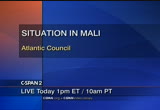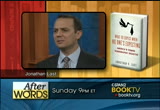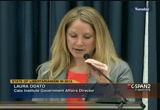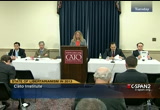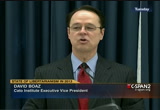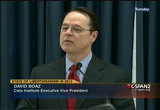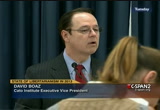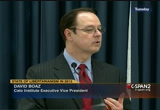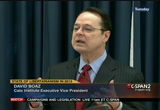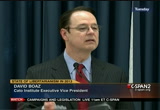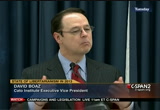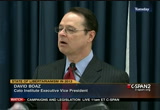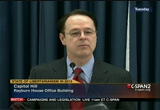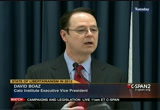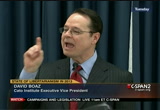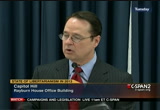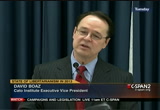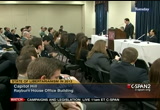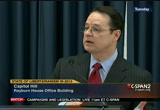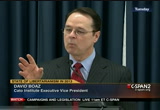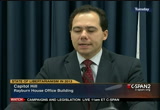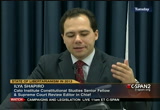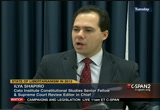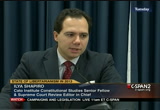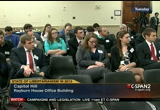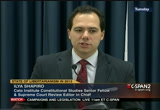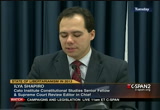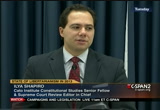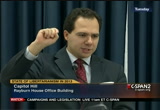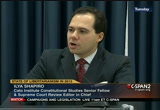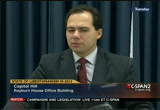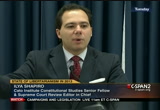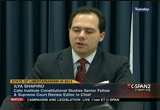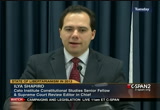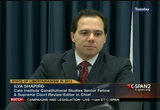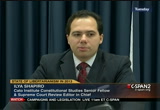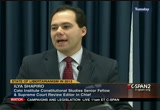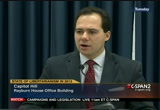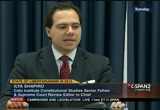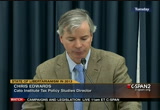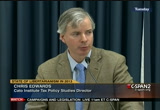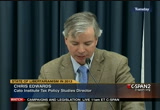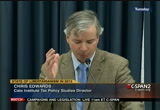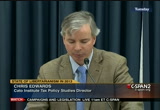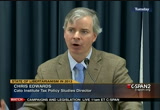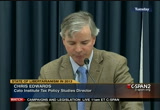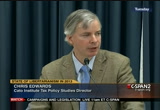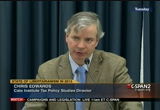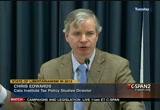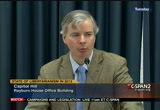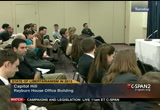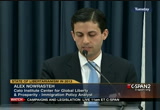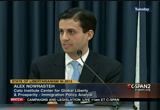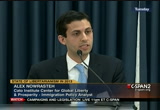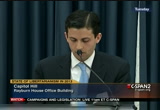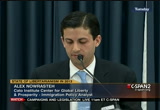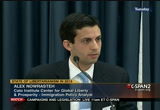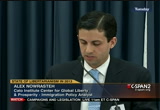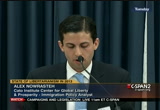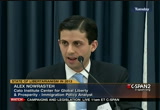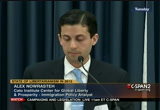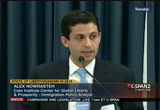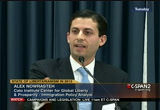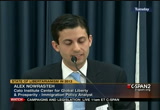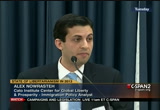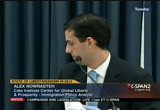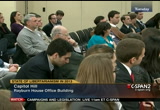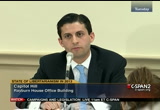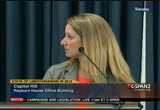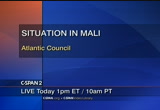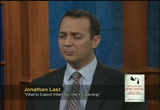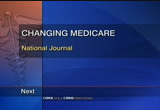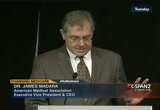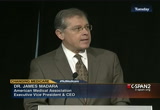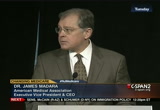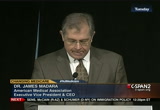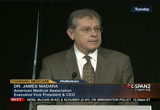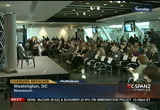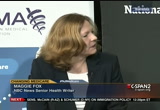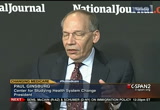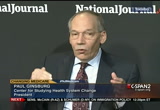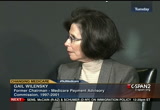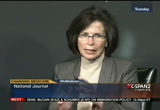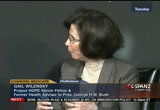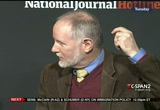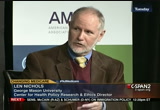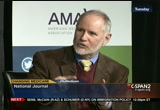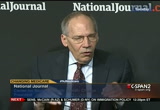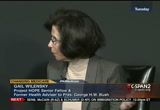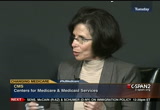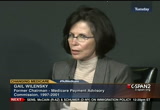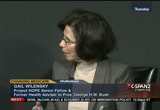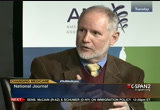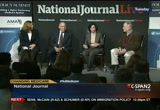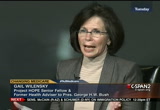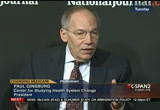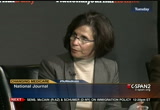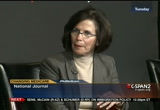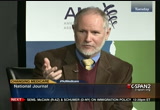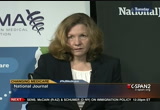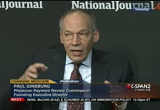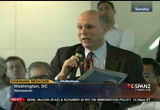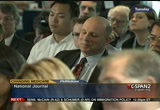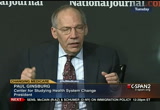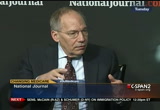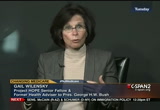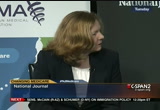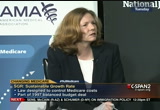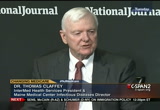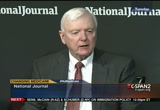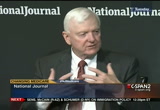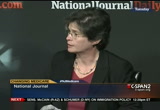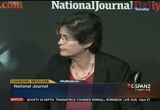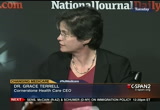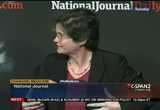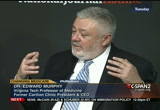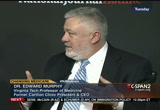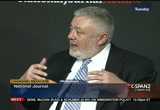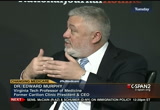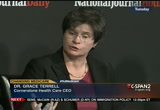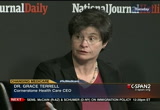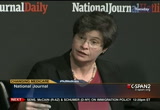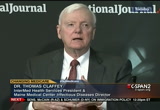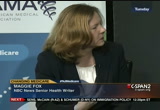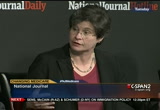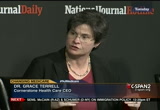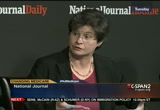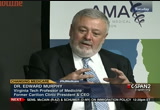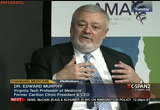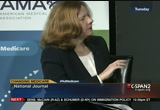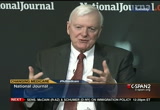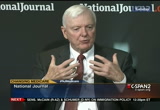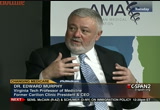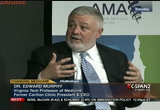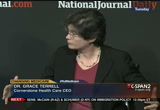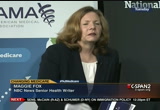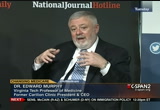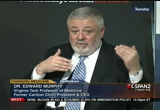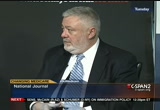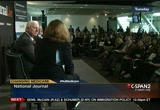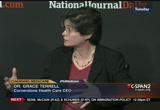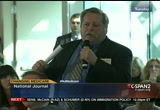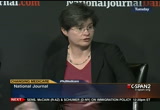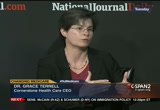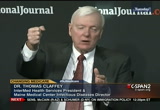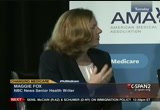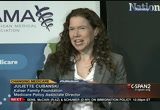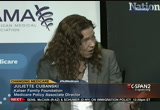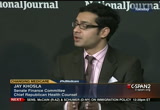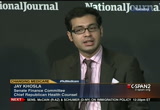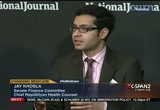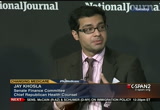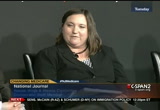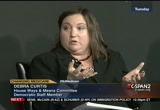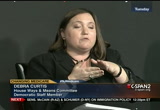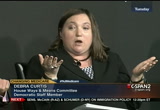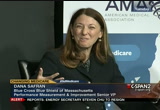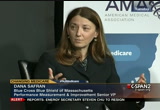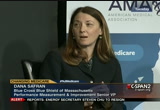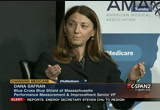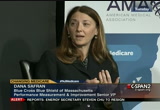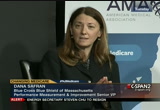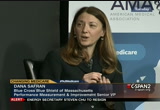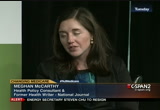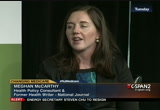tv U.S. Senate CSPAN February 1, 2013 9:00am-12:00pm EST
9:00 am
called watching "zero dark thirty" with the cia. separating fact from fiction. that's not part of this series but it is another national security event that i think will be both interesting and fun tomorrow. so with that let me thank all of you, and you, and we are closed. [applause] [inaudible conversations] >> several livens to tell you about today. the georgetown university law center hosts a form with campaign staff members and representatives of interest groups who will focus on how lessons from last year's campaign will affect legislation in the new congress. >> from almost the funnier able to see fertility rates declining, and by the time we hit the second world war we were
9:01 am
right around replacement rate. right around 2.1, 2.2. then after the first world war, or the second world war we had the only major increase in our fertility rates. that's the baby boom. that's the term which gets us. it really was a remarkable moment. it not only was the fertility rate increase quite i can put up to as high as 3.7 i think white americans and i think 3.9 for black americans, not only did it jump up but instead of for an entire generation, a really long lasting effect. people change the way they live for generations. again by 1970 that momentum, that moment had ended and we saw not a gradual float down but really the fertility rate dropping off the cliff. >> jonathan last and how changing demographics and birth rates could cause the u.s. to lose its place as a world leader. sunday night at nine eastern on
9:02 am
"after words" on c-span2. look for more booktv online, like us on facebook. >> now, a discussion on a state of libertarianism hosted by the cato institute. this hour-long forum includes a look at gun control, federal spending, and cases coming before the supreme court. >> i'm going to shorten everyone's bio in order to get to them. our first bigger is the executive vice president of the cato institute and his buddy q. and to develop medicare instead and the libertarian movement. he is a provocative commentator and leading authority on domestic issues such as education choice, the growth of government and the rise of libertarianism. he's the author of libertarianism described by the "l.a. times" as a well researched manifesto of libertarian ideas. the edit -- on that is ilya shapiro, senior fellow and constitutional study of the care and editor-in-chief of the cato
9:03 am
supreme court review. is provided testament to congress and state legislators and escorted of cato's program. election directly on behalf of the federalist society another victim is a member of board of visitors at the fund for american studies and was an inaugural washington scholar at the "national review" in state. after that with chris edwards, director at cato. he is a top expert on federal and state tax and budget issues. he's also testified to congress on fiscal issues many times and articles on tax and budget was have appeared in the "washington post," "the wall street journal" and other major newspapers. is the author and co-author of articles. last but not least we have alex nowrasteh. he is at the center for prosperity. writer that he was the immigration policy analyst at the competitive enterprise institute. his work has appeared in "the wall street journal" and "boston globe," "huffington post."
9:04 am
he's also appeared on fox news and bloomberg and numerous other television and rail stations. with that i will turn the podium over to david. >> thank you, laura, and thanks for all of you for being here. it's good to have you. my colleagues going to talk about specific policy issues in the areas of expertise but i'm going to try to open things here with some more general philosophical, political discussion. a lot of people believe politics is just a struggle for power, and certainly if you look at the elections, if you look at the way congress is operating these days, and, indeed, if you look at great deal of history that is what politics is. it is the continuation of war by other means. it is a quest for power, whether for your race or your tribe or your religion or your ideology or your region, whatever, your
9:05 am
industry, these days, policy, politics is a lot about power. but we always hope that some people in the discussion of politics, and especially policy, will stand for something bigger, something broader, like the public interest, like freedom and justice, the ideals of the declaration of independence and constitution and the pledge of allegiance. and ideally we hope in washington that that's what think tanks do, that think tanks are separate from abstracted from the day-to-day struggles for either political power or special interest benefits from public policy. and, obviously, there are some who do that better than others but in the platonic ideal of the think tank is one committed to the public interest and even though we may disagree about what the public interest is.
9:06 am
some think tanks insist they don't have an ideology, and worldview of perspective, a political philosophy. they are just about analyzing and seeing what works. i'm all in favor of analyzing things and seeing what works, but to define what the something is working you have to define what are the goals you seek to achieve. is freedom one of the goals that policy ought to enhance? is justice, and social progress, is widespread prosperity, all of those things are the standards to which you judge whether policies were, or you do. you may have other standards that you use. so at the cato institute we've always been very up front about having a perspective, and our perspective is probably best known as libertarian. it could be known more to political philosophers, professors of political theory as classical liberal, or maybe it's just individual rights and free markets, peace, prosperity
9:07 am
and freedom. but libertarian is the name that we can associate with most of the time. i did a book, libertarianism a trimmer but i also did the libertarian reader. revenue books coming out by another scholar this fall on the system of liberty. what classical liberal ideas are. i want to take a minute just to discuss three key ideas that i think are the classical liberal or libertarian perspective, and that underlie the kind of policy ideas that scholars at the kid institute usually talk about. the first one is individual rights. classical liberals can disagree on what the source of individual rights is. something our rights come from god. something from human nature. something from a study of history. one thing i think we all agree on is they don't come from government. they don't come from a king or a parliament, or even the constitution.
9:08 am
they are in prescriptive goal which means they are not prescribed by any human aging. they are rights we have as human beings that are protected by and guaranteed by the constitution, not granted to us by the constitution. people get that wrong sometimes i think. basic constitution grants me my right to free speech. now, cancer tissue protects your right to free speech. i think that's an important distinction. second idea is spontaneous order, and if you taken a political theory class you know the difference between positive and normative theory. so you might say that individual rights is the normative theory. it says what things ought to be. spontaneous order is a positive theory but it just as what things are. there's no need to believe in individual rights or anything to recognize the fact in the world of spontaneous order. to most of us, most of the order in the world seems planned.
9:09 am
took a lot of planning to organize this event today, took a lot of planning to organize the c-span network. it takes a lot of planning to build automobiles, to create airlines. all of the kinds of things that we see in the world. why is there, why is there food in the grocery every day? you think that must be planned. somebody must have planted. but, in fact, the most important kind of order in society are not planned. they are way beyond the ability of any person or group of people. and that's not just a point about the economy. think about language. nobody plans the english language. the english language arose spontaneous. it evolves just like the french language, the russian language. the are a few linkages like esperanto, that have a few things in common.
9:10 am
they were designed by human beings. they were planned, and no one face them. all of the languages people actually speak are examples of spontaneous order. law, i know we are here in the rayburn house office building. everybody here thinks they are involved in making law, or at the very best, the president and the congress and maybe the supreme court make law. but the fact is law originally evolved spontaneous. people have disputes. they try to settle them. sometimes they turned to a neighbor to settle them. some of the wisest neighbors became known as judges. and the judges started saying, how did we decide that last time? that's how president and case law build up. he was actually much into that process that government started saying let's codify the law. let's write it down, and let's
9:11 am
change it through legislative or executive action. money, most people in washington think money is something ben bernanke prints, and he does print a great deal of it. nevertheless, money originally evolved because again people have a problem, how to trade. if i have a fish and you have an apple, we have an easy trade. but if i don't like apples and you already have enough fish, then suddenly we need something to make those trades possible among the larger network of people, and money evolves. and eventually begin governments took over the creation and production of money, that they didn't originate it. it spontaneous the false. and then there is the economy. and their we do say how is it that washington, d.c. gets fed every morning. there's not a farm or a cow or chicken within the city limits. how does it get fed? to someone direct it? does congress or the city counsel instructs that food be
9:12 am
brought to the grocery stores? no. it is a spontaneous order, because there are people with demands, because there are people somewhere else with supply. or because there are people willing to supply something because they heard there is demand for it. this huge network, complex network, of satisfying people's needs is created. milton friedman talks about how he went to china, and he was asked by the minister of finance or somebody like that in china, a very smart man, you don't get to the top of a 5000 year old meritocracy without being every smart guy, and a he asked milton friedman who was in charge of material distribution in the united states. friedman said for once he was speechless. who is in charge of material distribution? he said i thought of telling them the chicago board of trade, but that's not really the answer either. the answer of course is no one is in charge of materials distribution.
9:13 am
the market of coordinates that, and that's why we've had a lot of materials in the united states and they've had hardly any materials in china back when you're trying to plan and organize materials distribution. hayek wrote about the alternative view to the spontaneous order which was the fatal -- the idea that experts can direct resources more efficiently than can millions of independent decision-makers. and we saw the most strikingly in the comments the world where there was this idea that committees and soviets, as they were called, could plan something more efficient than the chaos of the free marketplace. but we also see it here at home. we see back in the clinton administration they brought in -- is going to organize task forces, organized the entire economy and decide what goods and services we would need 20 years and so it could be planned to create them.
9:14 am
hillary clinton him up with a very complicated health care plan which eventually ended up of course more unless being passed 20 years later by the obama administration. the obama administration also believes that its experts know that what we need in terms of energy is green energy. so we're going to channel a lot of resources to green energy companies. but it's not just democrats that do this sort of thing. i was writing this morning about how the state of virginia has been trying to centrally plan the love lives of virginians for 100 years. they tried to keep the mentally feeble from reproducing the they tried to keep people of different races from marrying. now to try to keep people of the same sex from marrying. and in all these cases it really is, we experts know better than these people who should marry, who should love, how people should live. we've got a government that subsidizes marriage for some
9:15 am
people and bands it for others. that is the fatal conceit. that is central planning. thinking that you can centrally plan love. so with individual rights. we're spontaneous order. and then the third key element is limited government, which is what protects individual rights and the spontaneous order. we always say at cato, a government of delegated enumerated and thus limited powers, we have our rights. we delegated the protection of them to a government. in the document, the constitution, we' we've enumerad what powers we were delegated to the government, and by so a new rating them, we limited them. because if it isn't in the constitution the government can't do it which would allow most of the to go because there would be no legislation left to do. but there are a few things actually allocated to the federal government, and they should do those things. government is essential to a free society but it should be
9:16 am
limited. let me say something brave about politics. this is the libertarian state of the union for a lot of libertarians, the election results were very discouraging last fall. had the election results gone the opposite way, it would have still been discouraging for a lot of libertarians. but either way, certainly not a happy situation. however, there were some, there are some libertarian trends going on in america, some of which we notice on election day. one of them is people finally starting to question the wisdom of drug prohibition, another form of central planning and intrusion into peoples for -- personalized. two states voted to remove the criminal use of private use of marijuana. possibly first step towards ending this century's prohibition, maybe 100 years after we ended out call prohibition. -- alcohol prohibition. i published a book late last
9:17 am
year which i can't wait because it is an e-book but i can show you on the ipad, here's the cover of my book, the libertarian vote. and what are things i said in the libertarian vote, there's two co-authors, one of things i put out in there was the "washington post" did a poll of swing voters late in the election year. and among other things they found out that the true swing voters, and they were very picky, they asked people have you made up your mind. are you in. are you an independent. and they said okay, do you usually vote republican or democrat, and they got down to visit his about 5% who are really open in any typical election. and of those to swing voters they asked that question to one of the things they found out was that 64% of them said they support smaller government with fewer services over larger government with more services.
9:18 am
and meanwhile, 63% favored gay marriage. in some theoretical sense if you like gay marriage and you should vote for obama and if you like smaller government you should vote republican. but what did you if you, you like both? neither candidate, neither party fits very well. there was another poll of the "washington post" it, i reported in august most americans in any "washington post" abc poll want a shrunken federal government. support for smaller government is up significantly in recent years, and marks a pivotal issue where voters view obama as far out of step with public opinion. and note when you ask people a poll question committees for smaller government with fewer services, or larger government with more services come your kind of killing people the benefit of larger government. you are not telling them the benefit of smaller government. so if you we phrase the question of little more fairly, do you support smaller government with fewer services and lower taxes,
9:19 am
or larger government with more services and higher taxes, you get about another 10 points. so instead of 60%, you get almost 70% say i prefer the one with fewer services and lower taxes. so what i think that means is republicans haven't been very good at defining it. but there is a constituency in america still of people who would not call themselves libertarian and probably wouldn't kill themselves liberal or classical liberal. that they basically do believe in smaller government and social tolerance. and either party could go after that constituency which is a swing constituency. more of the work in our book, "the libertarian vote" demonstrates people with those views have swung back and forth between the parties. more than most have. so as we talk about public policy, i know people on capitol hill also think about politics and i would just urge you to think about the possibility that there is this group of
9:20 am
libertarian leaning swing voters who are up for grabs in some sense for a party that supported smaller government and social tolerance. thanks very much. [applause] >> well, that was great, david. i think the first of i ever heard you speak was when i was, i was on hil hilborn up but i wn intern, gosh, i don't want to say how many years ago, and every time i hear you i learned something else or other how better to present these ideas that we believe. i'm here tonight to talk about a whole long list of different policy areas. i had a constitutional law, other things related to that. i'm going to focus on traditional, gun control and continuing obamacare litigation. this is the state of the union
9:21 am
as it were, so what can i report in my area in terms of the constitution? well, people seem to care about it, or at least know about it more than they did five, 10 years ago. increasingly, people ask where to get the power to do this, not just have you got your cost-benefit analysis together correctly. one, evaluating public policies, and that's good it. and the obamacare litigation, the big one the supreme court decided in june, the supreme court adopted every argument that cato made to it to now i'll ask someone else is responsible for the taxing power and things like that, but in terms of a lot we are much better off for that decision but it's kind of like the operation of its success your so i think the constitution and constitutionalism is moving along, even though the president
9:22 am
and other members of the executive branch keep saying things like well, we just can't get anything done because of this constitution sometimes you have to ignore all that. the other branch of government just are being supported so we'll just have to do our own thing. likely the constitution is there and you just last week the d.c. circuit, the appellate court here throughout the recess appointment to the national labor relations board under that crusty old dispute that the constitution doesn't give the president the power to simply nominate people, agencies can whatever he thinks that congress is in recess. i mean, the recess appointment provision of the constitution was meant to allow the federal government to function while the senators were coming back on horseback out from the farthest western region of the country. ohio, kentucky, right? took weeks to get back there. so you have had a government
9:23 am
functioning. know, the court said you can't do that. indeed, we went even further. the only recess is the count are the ones between session. summer break it doesn't have the easter break doesn't count. and for all the appointments, for only positions that became open during that period. for all of us of not just the nlrb on a whole host of recess appointed people are now the authority is in jeopardy, and litigation is ongoing. we will see what happens with richard cordray at the consumer financial protection bureau, also similarly positioned homages renominated officially last week. in terms of judicial appointment, not the recess appointed ones although sometimes judges get recess of will to obama made far fewer nominations that either bush or clinton might have read or just know that he confirmed fewer judges than either of them. while the majority of the reasons, he set up two
9:24 am
nominations. hard to confirm judges that haven't been nominated. the confirmation rate was also slightly lower than for bush but interestingly, obama can from a higher percentage of the more political the higher profile court of appeals judges. i don't know what's going on with the district judges, whether there are problems on the ground with home state senators or obama simply is nominated in late in the congressional cycle, and they're not getting voted on during a loan -- lame duck after the election but it's not a matter of obstructionism or people not getting hearings for that matter, hearings are about the same rate as for bush or for clinton. and far fewer nominees have been filibustered under obama than were under bush successfully or unsuccessfully. generally i think the story that you saw the first term that may well change is that president obama simply did not want to spend a lot of political capital
9:25 am
on his nominee. even though the ones that were higher profile that you could see this could be an example of a progressive how want to take the court sort of you. say good we live in the ninth circuit, now on the california supreme court. the president simply did not put any -- twisting arms or use of any political capital. now after reelection maybe we'll start doing that. of course he also had two supreme court appointments that took up a lot of time and energy. but i don't think that can explain a whole do. i don't think we'll have more supreme court vacancies for a while. all the justices seemed to like what they are doing. ruth bader ginsburg is the oldest one. she's currently 79. she said that god bless you, she survived cancer three times and wants to stay on at least as long as her hero brandes, proud of what had a republican appointed her successes of my that should be resigned at some point in 2015.
9:26 am
the big cases this term of the supreme court, there's one an affirmative action, at the university of texas. we see a decision in that probably soon. that was argued back and i told her. a big voting rights case, shelby county of alabama questioning the continued wisdom and constitutionality of a law of a section of the voting rights act that requires the states certain jurisdictions, not just on by the old confederacy but it seems like a random hodgepodge of cities, towns and states all over the country to clear any election regulation be at moving your polling location from a firehouse to a schoolhouse by the federal government. and it's not correlated to voting rates of registration rates on the market. i think we're probably going to see the supreme court strike down that provision which is going to make a lot of ways. and, of course, as david alluded to, a couple of gay marriage cases are before the corporate i
9:27 am
think it's highly unlikely that the supreme court this term will simply strike down all restrictions on gay marriage, require all states to provide. and in the cases they to can easily be decided without reaching that point. one is the defense of marriage act, section three about federal benefits the federal government has to get the same preferences and these sorts of things. for people who are lawfully married in their state you are gay. and you can see justice kennedy still may being the deciding vote but completely on federalism grounds. he seems like federalism more and more if you look at is writing the last few years without talking about fundamental rights or equal protection. and another cases california's we're to propagate. i'm not going to go into because my time is limited. i want to talk about other things. but i think the most likely think there is there is a technicality procedure going about standing or movements or who can stand in the seat of to represent your case to the court. that would also be one way to
9:28 am
hand victory on i guess federalism grounds in the dome a case while also not enshrine a constitutional right to gay marriage, the court is not ready to do that. moving on to which probably right now, what alex will talk about, the hottest issue and that's gun-control. now, president obama's executive engines, there were 23 of them, were a pleasant surprise in a certain extent. he wasn't legislating himself a ban on assault weapons, or confiscating guns or anything like that. there were 23 items. i printed out a press statement from the white house website and drew a chart beside it and tried to take off where there were potential second amendment problems and whether other problems. i didn't find any second amendment problems. what i did find was occasionally there might be keeping on how things play out when they
9:29 am
authorize officials or agencies tasked with one of these 23 items, when they get around to writing regulation or acted what have you there might be intrusions on privacy. that could be concerns regarding federalism. what is the federal government get off telling regulating certain aspect of our lives, the your relationship with your doctor or how a business runs is practices, how first responders that are local and state are to behave or what kind of mindset to put together, that sort of thing. a couple of ibm's -- that's probably a bigger issue facially before we can see how things play out. for example, obamacare itself forbids the collection of information regarding guns. and yet one of the directives is to clarify that obamacare does not prohibit doctors asking their patients about guns in their homes.
9:30 am
without obamacare that's probably something a directed the federal government could do, but i look at the technical language, and you should as well, and it seems like for good or ill, that contradicted. also the centers for disease control's is prohibited by law from conducting certain types of research that could be categorized as advancing can control or a second gun policy in any way really. and hear one of the items is directing the cdc to do research in this area. so it's a technical thing. there might be lost is about. we will see how it plays out. on obama's legislative proposals, i'm afraid i'm a lot less sanguine. the least controversial one is the idea universal background checks. we will see how the actual legislation is written, but there are background checks, there are background checks. it's something that instance
9:31 am
takes no more than 24 hours, say, and checks to make sure that people are not convicted felons, violent wife beaters, or have a history of mental illne illness. and it's a good verifiable system. that's pretty good. but what if it lasts weeks and weeks and weeks and is a pretext for keeping guns away from law-abiding citizens? or what if it interferes with of somehow inadvertently criminalizes and focal giving his nephew his gun for the weekend? or even renting it to his nephew to teach him about economics or what have you. you could have a lot of scenarios where there's transferring of guns privately whether do background checks connected, i just had too many guns. i'm a collector, i want to sell mind to another collector privately. this isn't about the gun show loophole. most gun shows to go through background checks anyway by the
9:32 am
way because firearm dealers are at those shows. they are bound by the same rules as they would in their stores. that's the least controversial one. get up to high-capacity magazines, well look, magazines or simply boxes with springs. you can make them. there are millions of them out there. the most common ones are between 10 and 20 bullets, and 20 restaurants all of a sudden you're going to make illegal millions of little boxes with springs. this has the potential independent outlaws written and how it is enforced to add, to fill our prisons just as much as the drug war. the assault weapons ban heavily defined assault weapons can how you define an assault weapon. i went on the stephen colbert show three years ago, and he asked me this question. in a much more amusing manner, and i said well look, the devil is in the detail. machine guns have been banned since 1934.
9:33 am
nobody is arguing, or at least i thought it would be uncontroversial when i said on that show that there's no right to personal rocket launchers but i did get some pushback from some interesting people that e-mailed me, but if you defined assault weapons as grenades and rocket launchers and machine guns, that's fine. but if you defined as an ordinary hunting rifle that happens to have some cosmetic feature like a grid or an extended stock or to be adjusted so that both men and women can fire it, or has a bayonet mount on it, those bayonets that actually does more now than they were during the revolutionary war. if those sorts of things of course did not affect the caliber of munition, the rate of fire or anything else, if that's how deep -- if that's how you define, i'm sorry, i'm against that. that's our rifle that looks cool. you can have a what you see that looks really scary. are we really going after prevent people from being scared? are we trying to address the problem of gun violence. and all this ignores that all of
9:34 am
these types of solutions, not a single study has shown that the actual reduce the incidence of gun violence, and suicide or accidents. studies by, i don't think anybody called partisan or skewed, national academy of sciences in 2004 did one of these has been looking at books and books and studies and papers, and just exhaustive research and couldn't find a single one of these sorts of gun control measures that did anything other than make politicians feel good. at the end of the day this is about mental illness. it's about keeping guns away from kids and felons living with you, and things like that. and, indeed, when colorado after columbine past his gun regulations, some of which could be called gun control, some of which could be called gun rights, having such as increased tort liability for negligent storage of guns, strengthen
9:35 am
restrictions on straw purchase purchasers. but also making sure that when something is designated a so called gun free zone, it actually is a gun free zone, by putting armed guards and confront the interest is rather than just putting a sticker on the wall that would and should on people with guns will be the ones you don't want having them. and fundamentally the right to carry. and this will lead to the supreme court the next few years. the second amendment of course protects the individual right to keep and bear arms. what does bear arms mean? in d.c., still in chicago and new york and a lot of other places, you now, only because the supreme court said so, have a right to keep a gun in your home for self-defense. what if you live in a dangerous area and you're walking home at night? what if you're a small woman or man, a small person who is not going, it's going to be overpowered by thugs attacking you? what if, any number of reasons for why you would want to have a
9:36 am
gun in your car, in your purse and what have you. in many states such as new york, the only we can do that is if you're a celebrity or a former law enforcement official. it's not the complete discretion of law-enforcement and their practice is not to give it to the ordinary citizen. and lets you can demonstrate a defined need. just living in a dangerous area isn't enough. so that is going to be litigated to ultimately supreme court is going to allow some regulations and some do make sense but only if they make us safer rather than making politicians feel like they're doing something, and if they are narrowly tailored to us to minimally invade our second amendment but also other types of rights, just like the restrictions battle allowed in other constitutional areas, first or fourth or anywhere else to i will briefly mention the four areas or five areas continuing obamacare litigation.
9:37 am
cato has a forum next thursday on the so feel free to watch that. for more details. is now challenging the lawsuits challenging the taxing power as chief justice roberts invented it, based on where the bill originated, based on how the power is used, things like that. we're not out of the woods in on individual mandate. but beyond our the mandate tax, whatever it is to i call it the use of cortex. a preacher of no known constitutional province that will never be seen again. the independent payment advisory board, which is a fifth or sixth or seventh branch, academy what we're up to a government makes its own rules and enforces them. a lot of separation of powers and problems there, pursued by the goldwater institute in arizona. the contraceptive mandate the use of got a lot of press later. i've written about it. you can look at cato's website. but the idea that some bureaucrat, the expert as david says, their understanding of
9:38 am
what needs to be covered and paid for by taxpayer dollars plus whatever religious belief or other right of pocket you might have create a lot of problems. not just for churches, not even for churches that other non-purely worship activities. my colleague michael will talk to your out about this very important lawsuit by oakland and others about irs regulations are being promulgated without any authority in obamacare in terms of giving subsidies to people who live in states where the states have declined to set of exchanges. the federal government is sending them a. the supervision of that in a while of the irs. then we're going to see about the so-called mandate plus. that is because congress realized that the choice that chief justice roberts is now giving, to bind should paying that tax penalty thing isn't high enough to any rational person buying the insurance. they want to of that with user
9:39 am
fees and other things. not only does that not authorized by law but that goes against how chief justice roberts authorized this particular tax in that it is not coercive or punitive. it doesn't provide an incentive to make one choice or another. thank you. [applause] >> thank you all for coming today. i'm going to talk about federal spending and budget policy. the libertarian state of union with respect to the federal budget is very, very troubling, as i'm sure most of you know. federal spending is vastly blurred and is expected to keep on rising rapidly in the years ahead, and less we make big reform. i'm going to talk about two things. for some going to give you a big picture, sort of macroeconomic overview of why all the spending is bad for the economy, and secondly i will discuss at
9:40 am
michael economic reasons why spending on particular federal programs harm society. washington spends almost all its time worrying about the big overall macro problems with spending, but it doesn't focus enough on the microeconomic problem with particular spending programs. so let me look at the big picture problem first. most experts looking at the federal budget know that rising spending, particularly from entitlements is pushing the united states towards a greek debt crisis in coming years and decades. federal spending has jumped 18% of gdp a decade or so ago to 23% today. the cbs show spending rising to 40% of the economy by the 20 \40{l1}s{l0}\'40{l1}s{l0}, less we make reform. if you at state and local spending on top of that, the government of the united states will consume half of everything produced a few decades down the road. but the situation is actually much worse than that. the situation is worse than cbo
9:41 am
shows in the regular long-term forecast. the reason is the cbo is based forecast do not show the negative effects of all the rising spending and debt on gdp. the cbo projections assume gdp will continue chugging along decade in the future. cbo admits it that it doesn't take into account the dynamic or feedback effect of this rising debt and spending on gdp. so the reality is what's going to happen in the future unless we make reforms, more and more resources are going to be shifted from the private sector into the government sector which will reduce overall productivity and gdp, and secondly there will be major pressure to put up taxes, higher taxes lead to greater economic distortions. again suppressing gdp. and again those facts are not in the basic cbo projection but our fiscal future is much scarier than he usually cbo shows. as government spending grows in coming decades, gdp will be
9:42 am
suppressed more and more. it will sort of be like a fiscl death spiral in coming decades unless we make major reform. so those are the big picture problems of federal spending, and these are often discussed by budget wonks and others in washington. however, all federal spending is spending on particular programs. spending is not just bad because it leads to these overall macro economic problems. spending a many hundreds of particular federal program caused damage to society and harm individual freedom and grid all kinds of other problems. so the issue with federal spending on the federal budget is not just the question of whether $3.6 trillion is too much to spend this year. but the problem is whether spending on the hundreds of particular federal programs causes damage to society and the economy. and that's why think the libertarian critique of the budget is different.
9:43 am
of the normal critique of fiscal conservative of budget hawks in washington. they generally focus on sort of the big picture issues. at the libertarians are equally or more concerned about the damage done by many hundreds of programs in the economy and on individual freedom. some going to run through eighth problems caused by many hundreds of particular programs in the federal budget. so first many federal programs violate constitutional federalism under the constitution, the federal government was assigned specific limited powers. and most government functions were left to state and local government. yet today the federal government sticks its nose into many hundreds of activities like urban transit and public housing that are purely local concerns. there are many problems with this as i've written about excessively. one of the problems is when they -- it replicates those mistakes across the country.
9:44 am
a classic example is the federal government spends tens of those of dollars funding high rise public housing but hybrid public housing was a comely disaster socially and economically. destroyed many inner cities help destroyed many inner cities and the federal, funding replicated that mistake city after city across the country. the second problem and many federal programs have is to produce individual freedom. obamacare is a great example of this. with all that massive spending power came all those rules and regulations that are reducing freedom for businesses and individuals. and you can take any of many federal spending programs, farm subsidies are a good example. those farmers are happy to take the 20 billion a year in farm subsidies they receive at all the rules and regulations attached to those farm subsidies. individual farmers yes, they take the money but the federal government tells them what to plant, tells them how me acres they can plant and prescribes
9:45 am
all kind of other rules and regulations for them to follow. so with more federal spending comes less individual freedom. third, many individual spending programs thwart the economy federal housing subsidies helped create the housing bubble which led to the recent recession. unemployment insurance pushes up the unemployed interest problem. program pushes up unemployment. number four, many federal programs are frankly just unjust giveaways to special interest. farm subsidies are a good example. to libertarian farm subsidies are little different than theft, for the. we take 20 billion a year from hard working taxpayers to give them to generally high income for businesses. that's simply unjust and there are many dozens of federal programs that fall into that same category. number five, many federal programs great social problems. most infamously traditional welfare undermine personal
9:46 am
responsibility, and many other federal subsidy programs do the same. business subsidies undermine personal responsibility. social security, the single biggest federal program most politicians feel warm and fuzzy when i talk about social security. of the reality of social security causes major social and economic damage. for example, the existence of the social security program greatly reduces personal savings in the united states. it increases government dependencies. that harms, i think that harms society and our economy because personal savings is the seed core of economic growth. the assistance of social security reduces economic growth and reduces personal responsibility. number six, many federal programs harm the environment. farm subsidies, water subsidies by the department of interior, sugar subsidies have greatly damaged the everglades in florida.
9:47 am
there are many other examples. number seven, many federal programs as everyone knows are mismanaged and fraud ridden. this is nothing new. if you look at some of the oldest federal programs, even in a 19th century, there was a scandal after scandal with federal spending programs. army corps of engineers projects for example, back 150 years were scandal plagued. they ran over budget. they were porkbarrel. these problems are nothing new in washington. they go right back to the beginning. and, finally, number a, many federal programs simply don't work. you can look, for example, at a federal job training programs which were put in place by john f. kennedy half a century ago. these programs have never work. every decade or so the gao comes along and find essentially that they don't work. and again these sorts of problems go back many, many decades. if you look at some of the oldest subsidy programs that are
9:48 am
pumped up by the bureau of indian affairs. aside from the reservations where they have gaming, reservations continue to be just about the poorest places in america. these many, many decades of subsidy simply hasn't worked to lift indians out of poverty. so for all these reasons, major cuts in spending make sense whether or not we have a federal deficit. even if we have had a zero deficit. many program cuts and terminations would increase gdp and would expand individual freedom. and so the political upshot of this, and i will close on this, the clinical upshur, the fiscal conservatives always say they want to cut spending but not all of focus in recent years by fiscal conservatives in congress has been trying to impose over all restraint by putting on budget gaps, by voting for a balanced budget amendment. those sorts of cats are fine. i'm not against them but they don't reduce the underlying pressures to spend big only way
9:49 am
to do that is to directly challenge particular programs and make the argument that particular program are harmful and wasteful, unconstitutional, unjust and unneeded. so to make lasting reform fiscal conservatives in congress need to make start making the case cost -- cuts too many programs bigger the republicans want to kill funding for big bird, for example, as candidate romney wanted to do, they got to make the case for. they got to lay out the case and push on that for many months or even many years to wear down the opposition. so the very few examples in recent decades where we have been able to cut or limit or reform programs, there has been a big buildup and we've laid the groundwork for. most famously welfare reform in 1996 didn't just happen. there was at least two decades of studies describing the problems with additional welfare, and arguing that
9:50 am
welfare programs were very harmful. so if you want to cut spending we got to make the case for it in particular. so this is going to involve a great deal. if you want to cut spending, and i think we can in the long run, it's going to take a lot of work by many individual members of congress targeting and attacking many particular programs, and sustained those challenges these programs over months and years. so to conclude, it's an open question really whether republicans and any fiscal conservative in the house and senate are willing to do that or willing to sustain the attack on many hundreds or dozens of programs over time. we shall see. thank you. [applause] >> thank you. good afternoon. my name is alex nowrasteh come immigration policy analyst at
9:51 am
cato and i want to say that this briefing is excellently timed to talk of the immigration. yesterday the gang of eight senators released their blueprint on immigration reform, as did the president is in las vegas and supposedly will give a speech later today supporting that plan. immigration reform is more likely to take place this year than in any year since 2007. when the last large-scale immigration reform effort was soundly defeated in the senate i'm going to talk about three broad components of immigration reform. how yesterday's blueprint fits into that and some suggestions for making it better. and, of course, by making it better i mean making a more libertarian. there are three broad components of any large scale immigration reform effort. the first is legalization for the peaceful and unauthorized immigrants who are here now. the second is increasing future flows of immigrants, either through a temporary guest worker program or other means. this would have the benefit of
9:52 am
unauthorized immigration going forward, and provide a legal way for u.s. firms to hire many of the laborers and workers that beginning. and the third is better immigration enforcement, how do we make enforcement system stronger, smarter and more effective. legalization is without a doubt the most contentious part of this blanket under the blueprint of unauthorized immigrants who are not criminals are being put on a pathway towards legalization, which involves paying back taxes, fees, penalties and other restrictions. they would be legalized, which means they would be able to work here legally above board and in place on a path for green cards once so mysterious independent commission declares the border secure. will have any details about what this commission will consist of, but that's a general plan right now going forward. but the most important part is that they cannot be deported unless they commit a real crime during that time period. according to the blueprint,
9:53 am
dreamers come young unauthorized immigrants were brought here as children by their parents who didn't have a choice in the matter, will not be punished with penalties like older and unauthorized immigrants so they will get in the back of the line to receive green cards. unauthorized workers and agriculture will be put on a fast-track system because in some parts of this country a majority of all agricultural workers are actually unauthorized immigrants. in some parts of the country some states as high as 70-90%, depending on estimates. so the legal issue is pretty well addressed by the blueprint. i think it's a solid framework to go forward. i think it offers legalization for peaceful people were also penalizing them for breaking our laws. the blueprint also does something else that increases lawful migration. especially for highly skilled workers. so foreign masters of the ph.d masters in stem fields, that's and science technology engineering and mathematics
9:54 am
would be granted a green card upon graduation. this is sort of in adopting of senator jeff likes older proposal called -- called a stable and. i'm glad to see it in the. this is a very good mood but it's relatively small by comparison to the size of the entire system. the blueprint also talks vaguely about the looming backlog. so that is similar to legislative in the last couple years, that would mean removing the per country limitation on highly skilled green cards and workers coming in. as the system stands right now only 7% of workers in the program are allowed to come from a single country every year. leading to long backlogs for workers from places like india, china, mexico and the philippines. sometimes backlog for longer than a decade. so that would be a big improvement to the system. generally i think most people can agree that you have a very good reason to block highly
9:55 am
skilled and educated immigrants from coming into the trendy. this seems like low-hanging fruit of any kind of immigration reform effort. and i think they should be extended not just to immigrants who were educated in the u.s. but highly skilled and trained immigrants who come from other countries. spent and lawyers speak with some lawyers. i want to say, ilya is an immigrant to times over and i think the u.s. is made better off by him of being here. but a bigger and better immigration reform for skilled immigrants i think it's something that we should have only continue not just for s.t.e.m. but for other highly skilled immigrants as well. that is being contemplated by a separate bill going forward that would increase h-1b visas for highly skilled workers to an adjustable 300,000 a year limit. which is up about 215,000 from the present limit of 85. now both bills i think should go beyond that. and also make large numbers of easily obtainable green cards
9:56 am
available to foreign educated workers who of course past security and health checks. allowing portability for these pieces and diminishing the role of from sponsorship going forward. of the biggest aspect of the senate blueprint is what will happen with lower skilled guestworker visas. the blueprint says they want a program that works but also supports a increased regulation for visas. the problem is that the current visa programs, the lower skilled workers, especially farmworkers, arsenal overregulated that farmers refused to use them despite their theoretically unlimited numbers. so the state of georgia did a survey in 2011 after they pass their immigration law and as far as why don't you use -- if you want to hear a lot of usually soft-spoken southerners use a lot of four letter words, describe but easy the system is, i'd recommend checking out the georgia department of agriculture's responses to this. basically the program is too expensive, the regulations are
9:57 am
too crazy, too extreme, too intrusive. different agencies from cis from i.c.e., from dol and from other agencies on your property to investigate. so it's not surprising that these a system is under his. but the purpose of immigration regulation here, and those opposed in the blueprint is to try to protect guestworker some abuse. this is a laudable goal. the guestworker system we have now, employers sponsor migrant workers. it's very difficult for the workers to leave their employers or to quit. in such a system it's understandable how some workers could face employer and abuse. but the solution to the problems i think it's not increased regulation and more government oversight. it's increased visa portability. allowing guestworkers to change employers with a minimum of
9:58 am
government oversight is the best solution to employer abuse. the inability to quit your job without government punishment, without the fear of deportation is the best protection over grass against the employer, and that protection i think should be extended to guestworker visas and remove an entire layer of government bureaucracy. a guestworker visa for lower skilled immigrant workers is also the most important part of the reform. if you want and unauthorized immigrants going forward. almost all unauthorized immigrants coming for economic opportunity. allowing a pathway for legal entry into america's labor market makes in unauthorized immigration moved going for. the blueprint specifically separates the guestworker visa for agriculture from other sectors of the economy. while those sectors are no doubt important and would wither and die if they were stricter immigration laws and labor market regulation, lower skilled immigrants do not will to go to agriculture anymore. it's not the 1950s. the economy has changed and the notion of the skills of
9:59 am
unauthorized immigration has changed as well. so expanding lower to medium skilled guestworker visas into areas like manufacturing, retail, food preparation, construction, general services would be i think a great step forward towards forging future unauthorized immigration. and allowing certain sector of the economy to grow. the issue of enforcement is also very contentious. ..
10:00 am
for several years its integration enforcement activities from secure communities which started at about 1% of american jurisdiction in 2008. now moved on to 97% of jurisdiction covered. to a border patrol that is nine times larger than a was 1980 in terms of border patrol agents to the record deportation over the last four years in the first term of the obama administration enforcing across-the-board. all unlawful behavior in the case of immigration is mostly the result of a realistic immigration laws that have undertaken the impossible goal of separating mobile people from economic opportunity. to give you an example if i offered you a job with a wage three times larger than the one you are making now the you had to move across the country to take it, many of you would likely be considered at a decent
10:01 am
section of you would move. that is a choice and mexican worker with a high school diploma faces every day. three times higher wages in the u.s.. however, the difference between us and that mexican worker is we can move across the u.s. for the job while a mexican worker well unless he is closely related to an american citizen or green card holder have no ability to illegally enter the u.s.. his only all their options and authorize or a legal immigration. a lack of realistic immigration lawyers that take account of economic reality i think is the problem. a better policy, one that is more libertarian is the changing force from the punishment only arm of the federal government to a formal. this is how immigration enforcement can play a vital role in any kind of reform. immigration enforcement needs a formal to died peacefully and healthy workers into the system. screening and excluding
10:02 am
criminals, suspected terrorists and people with serious communicable disease. you might ask what is the president for this? there is a long one from 1942 to 1964 called the beccera program. in the middle of this program during the height, when about half a million workers were entering the country a year there was a serious problem with an unauthorized immigration that is very similar to today. the government lost an enforcement program with the very unfortunate name operation wetback, it's an unfortunate name and it's terrible but in those years the government apprehended from 1952 to 1954, 1.8 million authorized immigrants, but instead of just deporting them, drove them down to the border, let them take one over into mexico and then step back into the u.s. under the beccera program. they were able to step back in and work legally, the government knew their names, knew who they were working for, where they
10:03 am
were working and could keep track of them. in some situations this took place in the course of today which is a remarkable turnaround considering how today's democracy works. and in some cases drove them back to the forms they arrested them earlier that day. the government gave them eight work permit and knew who they were and that i think is a good exfil of the immigration enforcement funneling unauthorized workers in the system into a legal system. now we have the enforcement apparatus i think to do this very well, but we do not have the legal guest worker visa program to funnel the workers into. the result under the beccera program in this operation was in over 90% decrease in the authorized border crossings by 1954, 1955 a similar decrease in the size of the unauthorized population. by the wake of that decrease in reduction is even greater than one has been achieved during the great recession so it is a
10:04 am
remarkable defeat. a guest worker program expanded in the industry's available to migrants from other countries i think would accomplish the same goal relatively cheaply. the guest worker program wouldn't necessarily directly at the legal permanent immigration. during the becerra program, very few workers transitioned into green card and achieved that through marriage or family reunification. the vast majority of the 5 million workers who moved into the u.s. in a circular flow over the time period moved back to mexico eventually. even after becerra was ended but before the u.s. created any kind of serious border security and 1980's the mexican migration was moved temporarily and circular leaf. according to the data that we have from 1965 to 1985, there were 27 million entries of authorized immigrants to mexico and 22 million departures. yielding a net positive
10:05 am
5 million entries in a 20 your time period. in our day and age with cheap international travel, most immigration would be circular and temporary if only the government got out of the way and made it possible to come easier and cheaper with a large scale of guest worker visa programs. there are pitfalls for the immigration reform. respecting rule will fall an ordinance but that are worthy of respect. free labor markets are important and the legalization and guest worker combined with e-verify or similar national identification style systems would evaporate many of the economic benefits and leave us all less free. now it can be positive, but only when we have the good laws that are capable of actually enforcing a free society. thank you very much. [applause] >> i know we started late but our panel is about to take
10:06 am
questions. does anyone have any questions? >> my question is about immigration. >> [inaudible] 20% unemployment -- >> to start the market and create those jobs. the guest worker makes the market more realistic and responsive to the supply and demand. would uzi for instance in the northwest with apple pickers is there has been a record harvest this year especially in states like washington, and you see farmers increase wages from $20 an hour to 24 to 28, and they still can't get the workers they want. so, you have a situation where you have a lot of unemployed
10:07 am
american workers who certainly could do a lot of these jobs, but they are choosing not to. and as a result, a lot of farmers have to let a lot of their crops rot on their trees and in the field or unfortunately delve into the black market to haulier unauthorized workers. i think was ronald reagan in 87 that said any rule or regulation that makes this about food rots on the trees or the fields is a regulation we should get rid of and did miss hungry world i think that is absolutely right. we should be allowing employers and workers to make deals to come together and the situations like these require it. >> -- correction for that fairly quickly. >> at the cato institute we would argue that this distortion of the market. to remove numerous labor market relations that moves the market to a more stable place. but the market correction in that situation with the not higher wages for american
10:08 am
workers and of of these industries but to destroy these industries. how many fruit and vegetable producers which is a labor-intensive industry would be as large and production as they are now or be able to stay in business as they are now if they didn't have access. they are already increasing their wages dramatically and they are still not getting this, the workers they want. even in states like washington were georgia where they've taken prisoners out into the field and force them to do it, the prisoners still quit after a day. nothing works like a free labor market. >> i also do a job that americans won't, defending the constitution. [laughter] >> perfect. if you have any last comments that we didn't get to, otherwise we will -- perfect. thank you very much and please join me in thanking our speakers. [applause]
10:10 am
you are able to see these rates declining. and by the time we hit the second world war, we are right around the place, right around 2.1, 2.2. and then immediately after the first or the second world war, sorry, we had the only major instance of increase in the entire country's history. that is the baby boom. everybody knows about the beebee boom. that is the term that hits us. it really was a remarkable moment because not only did the fertility rate increase quite high, as high as 3.7i think for white americans and i think 3.9
10:11 am
for black americans, not only did it jump up, but instead for an entire generation. it was a really long lasting effect. people changed the way they lived for generations. and by 1970, that moment had ended, and we saw of a gradual slowdown but the fertility rate dropping off the cliff. on tuesday the national journal posted a discussion about ways to control health care costs. a panel of house industry officials looked at medicare costs and out comes and the ways to end its current structure which pay is based on the quantity of services provided, rather than the health of the patient. this is just over two hours.
10:12 am
>> good morning. i am constance sayers witherspoon is as the publisher of national journal, and i want to welcome you this morning to the summit building a high year performing medicare system. in addition to the folks in the room might want to take a moment to all of our live streaming video viewers watching that national culture of.com. so we can have your full attention i would ask to take a moment to silence your phones. we do want this to be a lively discussion. we want you to tell us how we are doing. we welcome your comments and suggestions at twitter at mjmedicare. we will also be coming around with a microphone. we ask that you state your name and affiliation before asking a question. this morning's policy summit wouldn't be possible without a generous supporter of the american medical association. here this morning we have dr. james mjmedicare users as the executive vice president and ceo. prior to joining, dr. madara and
10:13 am
accomplished medical center physician, medical scientist and administrator served as professor and chair of pathology and laboratory medicine at the emory university school of medicine. before assuming the thompson distinguished service professor shuck and dean ship in the university of chicago school of medicine, dr. madara. [applause] >> thanks very much. good morning and welcome. in the news gallery here at the newseum you will find a newspaper from july, 1925 and there will be a head line with a photo of president lyndon johnson signing medicare into law. we are now almost half a century leader in that same structure, and there are concerns about the program as needing renovation. so today we come together to ask
10:14 am
how congress and the health care community can work together to reach imagine the medicare program to ensure that patients get high-quality care but also in a cost-effective way. we will hear about new payment models that need for timely and accurate performance information and also the need to include physicians on the front lines and delivering care to the medicare population. physicians and others in the community understand the urgent need for reform. the ama and several organizations, 110 organizations and all have drafted a framework for what is needed and how we can come together to solve these lingering issues. this framework outlines core elements essential in transitioning to the new care
10:15 am
delivery models. and principles of this framework include the development of models that reflect physician diversity and practice, geography specialty, one size will not fit all and the models that reword the quality-of-care and lowers the rate by which cost gross. a third, concrete ways to measure progress and to show policy makers that physicians are accepting accountability both for quality and for cost. this approach we believe is a sensible and represents the diversity of the physician practices, patient populations and community needs in the nation. this framework will be available to you. while new efforts to shape the medicare system must move
10:16 am
forward, we also know that real progress can't be made until the fatally flawed sg ar formula is repealed once and for all. this longstanding and lingering problem perpetuates the annual threat of the cuts that destabilize the physician practices, and erode the confidence in medicare and limits access for the patient. these realities pose obstacles to widespread adoption of the kind of innovative care and delivery models needed to reinvigorate our medicare program in the service of 47 million americans. our work to build a strong and sustainable medicare system is just one effort by the american medical association and making in shaping a better future for these physicians, patients and the nation. we have embarked on a five-year
10:17 am
strategy focused on three critical areas to the future of health care. first, to improve the patient health outcomes and reduce health costs, second, to accelerate innovation and medical litigation to align physician training and education with the kind of environment they will actually experience once their educationist through the end number three, to enhance practice sustainable vbied helping deliver models that help make sense for the practices their patient and communities they serve. these are big and ambitious goals but they are the foundation upon which we can contribute and fulfill the mission from the ama which is to promote the arts and science of medicine and the betterment of
10:18 am
public health. we know to meet challenges of today's health care environment it has to be done as a group. we must all participate to the difference and this morning the national journal has gathered experts to share their ideas on what's right and what's wrong with medicare, why they must adapt and adopt now so that we can continue to accomplish that which can't be accomplished by any one sector of the health industry alone. i want to thank you for being here this morning and really look forward to the discussion particularly the nature of the participants. thank you very much. [applause] thank you, dr. madara. while we are setting up here for the first panel i want to quickly give you a rundown of this morning's program. we are going to have three distinct panels.
10:19 am
first are the leaders on health care followed by a second panel focusing on physicians and finally a panel of experts that will respond to what has been discussed and provide some context for all of us. moderating of three panels today is maggie fox a senior writer on health issues for both nbc news dhaka, and today.com. she previously was a managing editor of health care technology at the national journal. before joining national journal, she was a global health and science editor for reuters where she established an agenda setting science file for the news agency. she also served as a correspondent in hong kong and they refer organizations covering the former president and the philippines, the square protest in china and is one of the few people to have interviewed lydia's moamar gadhaffi. we have the studying health system change, dr. len nichols for ethics at george mason university and the honorable gail wilensky, senior fellow at
10:20 am
project hope. maggie. >> good morning and thanks everyone for being here. i want to thank the panel for being here too. as the program points out, these are three of the deepest figures. i'm representing the shallow end of the scale to balance it out so you can see the stage is ticking pretty hard. i'd dr. madara set a very good problem in his opening comment and that is a good way to get into our discussion is to ask about the plans that he raised
10:21 am
and perhaps transition into ways that we can get physicians, patients and insurers more on board with improving medicare and how medicare can lead the way. i know that all of you have very specific thoughts on the subject, but i know it will be safe, dr. ginsberg what is the best way to get physicians better involved in improving care? >> i think the main strategy long term is not so much to the individual physician's to interact with medicare, but to have the physicians joint organizations, physician organizations working for hospitals where the organizations contract with medicare. contract and with it as an accountable care organization for the bundled payments, rather
10:22 am
than so how twisting medicare's fee-for-service system into a pretzel to actually be evaluating the individual physician's for the quality and efficiency of the care that they are giving medicare patients. so in a sense i think that we really need an organizational interface between the practicing physician. >> by the organization, what do you mean? >> it could be a multi specialty group and as i mentioned in accountable care organization where according to law it has to be primary-care physicians but whether it is just a physician organization, independent practice association, a group practice or it could even be a hospital with either employment relationships with physicians or contractual relationships with physicians where an individual
10:23 am
can agree on not just going to be part of this organization, i am going to accept some of the risks of the accountable, but i see the future health physicians with medicare as developing organizations so they would have their allegiance and accountability towards the organizations to interact with medicare. >> with a practicing physician community and other participants in the health care delivery system that is for way too long the health care of the united states has been a volume driven and not enough attention has been paid to how to improve quality, how to improve efficiency, and the issue is how to try to get from where we are
10:24 am
to where we need to be given in most of medicare in terms of payments there are the last two decades a move for bumbled payments where rather than having medicare pay for each individual service that is provided in a hospital or in a nursing home ordering a home care visit there is a larger payment that covers a variety of services, and of the thinking is that will allow the clinician's or institutions to focus on the general purpose of the visit, the hospital stay or their home care visit, and not be too focused on each individual item tied by the billing system. physicians have long been a very different world. they built for some 10,000 different items. they've stayed with this very
10:25 am
disaggregated schedule that was attempting to keep spending in the aggregate as a specified limit by the sustainable growth rate that dr. madara reference and brigety ended up being frustrated. the physicians because they felt constrained in terms of what they could do by what they could build even if that wasn't the best combination of services taking care of somebody with complex diabetes you want to be able to spend time counseling them or to have somebody in your practice council you don't want to necessarily have to focus on is this something i can actually build for or can i find something i can bill for and so, trying to figure out the best way to help physicians be in a position where they can take good care of their patients and not fight the billing system is the issue that we are dealing
10:26 am
with. as we've said directionally there is a lot of agreement about what the what look like on the specifics how to move the physicians who had tended to be in small single specialty practice units to a larger group like they were describing where there are groups of physicians or the physicians are tied to hospitals or they are a part of a larger integrated delivery systems so they can focus on taking care of patients and have the measurement and performance or fairly measured in terms of whether or not they have good clinical of comes and it's done in a reasonable and costly way. how to make that transition is stopped now and lots of different ideas, figuring out what actually works is good to
10:27 am
be the number one job and not a very easy one. it will be getting our hands on date of deciding how we have to adjust for the different populations that were under consideration are the different mixes of the physicians and understanding what we have learned isn't going to be easy the positive way to look at this is that there really is a lot of agreement among people like the three of us. but also, in the broad physician kenneda nettie and its leadership that where we have been is not a good place to look to the future. we have to find a smarter way to provide better more efficient health care to the american public. >> dr. nichols there is perfect harmony when it comes to pointing out for the problems are to be it the hard part is figuring out what we can do in
10:28 am
reality given our current political climate what are some of the realistic goals that you think can be achieved. >> you should always buy good bourbon triet to talk about political goals but i would pick up on where she left off. it's fundamentally how to get them engaged in a way that we know everybody knows we have to move. we haven't written down the mouth and by the way it is probably going to be different in south carolina than it is in boston because it is a diverse country so i would say two things, you want to listen to physicians. dr. madara said it quite well. it's hanging over their head. we need to get that away because it can't focus with that sword. the second thing is to listen to what they complain about.
10:29 am
what i hear them complaining about is how much time they spend doing documentation that doesn't improve patient care. there is a term for that in economics and it's called bullshit. we need to fix that. [laughter] the way you fix that in my opinion is multi payer solutions. we spent too much time, and lord knows we had to but we spent too much time trying to drive the entire health care system through medicare fee schedule and it's a single important piece but it gets paid by other people there are 1300 members. how many can you name? that's the point. so they have to get paid. we have to figure out how do you have the multi payer arrangements so they can spend less time on the documentation of every single one and more time on the patient care and i think we need to focus more on responding to and joining a local initiatives. to me one of the exciting pieces of the affordable care act panoply of experiments, these
10:30 am
innovation challenge grants where they basically said to the country tell us how you want to be paid, tell us how you are going to document what you are doing to improve patient care. 3,000 applications, 3,000 applications, that means 3,000 different groups of physicians, hospitals came up with ideas about how to make the system better. where they live and work. my favorite was rochester new york. why? because in rochester new york got everybody at the table, all the hospitals, all the health plans, the medical society, they are running the community voices. employers. what a concept, private employers. any commission that i've ever met and i am old enough to admit quite a few all of them pretty much want to be paid for what they do in one way. they want to have one set of incentives, one set of quality reporting, one set of patient so that they can focus on patient care. how do you do that if you don't get them all to agree also
10:31 am
mashaal low level but on the structure of the payment. so, what i want is for medicare to figure out how, and i know that gail and paul are smart enough to make this a reality. where are they worked out already among the multiple private payers and just have medicare join the party. bring their data and bring their flexibility to adjust and adapt the structure that the locals have figured out and you look at rochester and you have a great example. >> i want to add something. i feel that we are at a very exciting time. i am optimistic for a change but the fact that the leadership for savings the same thing about what we want to get away from. we want to get away from fragmented and we are vague
10:32 am
about where we want to go and it's going to take a while to figure it out. but my sense is this is good to be a journey where it's not that we decide something isn't working we will just get rid of it and go back to where we were we will come up with ways of modifying it and fixing it and i think that we are established on the journey mali and it isn't going to be easy. but it is a fact that there is a consensus in vision on the different stakeholders is what is encouraging to me. >> so what can the affordable c.a.r.e. to get us what is good and what is missing? >> the part that is good and important for the u.s. is that most people starting in 2014 will have insurance coverage. this has been a serious problem at all levels for the country, is an embarrassing for a wealthy country like ours for so much of the population about insurance
10:33 am
coverage. it's very difficult for the people in the institutions that provide care to people when they get sick and this has been a country where when you get sick enough by law the hospitals at least to take care of you and many of the physicians in the community also have been providing services so it is important that we would substantially reduce cannot completely eliminate but substantially reduce the number of people without insurance coverage. what the affordable care act has done is to set up an environment in much there is support and encouragement for new innovations. the centers for medicare and medicaid is sponsoring some of these. len mentioned one of them, the challenge grant. the danger that i see and i worry about is into law,
10:34 am
medicare payment stays exactly as it was, the same structured silo paying for volumes not performance systems that we have had. there are some very small movements in the law so that there is a little bit of a reward the will go to hospitals starting in 2013 and starting in 2015 there is something called a value modifier that will tweak physician payments for the larger groups and then for everybody, but basically these are little tweaks at the end of the scheme. what we need to be vigilant about is that we drive but changes that are bubbling up to become part of medicare and medicaid reimbursement and that is going to take some doing
10:35 am
because we have had some experiences in the past where we give promising ideas and innovations the start and then they tend to run out and it is going to be bringing the dynamic change that is being tried in various parts of the country either as a part of medicare or part of a larger community a little harder to imagine what rochester is pulling off say in miami or new york city for example. >> whose responsibility is it? is the local organization? >> that is going to be one of the hardest questions. the advantage of medicare and medicaid is that when it moves forward, it moves forward in a major way. i used to love when i was running medicare being called the 800-pound gorilla that the fact is that there are huge constraints with how and how
10:36 am
fast medicare can move. the wonderful part of the private sector is that it doesn't have to play mother may i. congress had to permit the physicians and hospitals to come together and share savings because of the didn't come the would be violating the regulations and antikick back provisions for. they've been doing these types of activities the last four or five years because it didn't have to play the mother may i routine. the point is the public and private sector are going to have to figure out how to do this jointly to allow the innovation of the private sector to feed into the decision making of the public sector. the call the insurance group in many ways provides an
10:37 am
interesting model because by being fundamentally private, one of the members had the government at the table but without all of the constraints of having to do it as a government activity, which means every single change has to go through the administrative procedures act. regulations have to be written. they have to go through a very complicated procedure. finding a way for the public and private sector to come together, work together, and then when the results seemed clear for the area or for the country as a whole, that that point to me get a national policy that it really is going to be this figuring out how to live together because there are things each sector can do best. >> i want to go back to who is
10:38 am
responsible because that is in many ways the question and the answer of course is all of us are responsible. you have got to figure out, in my opinion we have to figure out how to get everybody at the table and my other opinion, physicians have to lead this because at the end of the day people don't trust health plans. people don't trust government. you can do both of those things. people trust their doctor. now, no situation can enable every doctor to be at the table, and i will say there had been occasions when the physician leadership organizations but i will also say physicians have to take ownership of the stewardship that we have to provide. how are we going to make our society's afford the health care that we can produce. only if we make the system far more efficient. to play the balancing act with
10:39 am
the trust of the patient and the benefits in their mind is the doctor. we have to learn some economics, and i am sad to say a lot of what they know now is more is better and more is not always better and so we are going to have to have -- >> a problem having all of us be responsible is that frequently that means none of us are responsible, and so making sure that we can hold accountable the major players of which are medicare and medicaid and private system is bring to the important and making sure the public gets involved which is frequently not been the case and then they also feel like they are part and parcel in the activity, not just something that we have been known for.
10:40 am
that's one of the limiting factors of the account will care organizations as the of initially constructed for medicare the fundamentally do not input the patient in any direct way. i think that is a fatal flaw that i do not think that it is necessarily a permanent issue because accountable care organizations on medicare may be a transitory phenomenon. they may be a way to get physicians to work together. they may be a way to get the physicians and hospitals that haven't worked together in the past to come to four minutes and then become more stable organizations that actively involved and enroll patients. we can't get the patients involved it's going to be hard. i completely agree with you. we need to have the physicians much more involved than they have been.
10:41 am
but ultimately if we don't get the patient at flea at all levels in terms of health care responsibility, financial involvement it is going to be hard to get the problem solved. >> i agreed to we missed a huge opportunity by not building and patient incentives and the accountable care organization structure. an organization can't even give a patient a positive incentives to stay with the group. can't even be all care to that's crazy. we should definitely have that sort of thing. >> this is a disease that congress has had for a long time that despite everything that has happened in health care and in private insurance, they still want to completely insulate the medicare beneficiaries from all types of responsibilities with his financial or others, and i think it is going to have to change perhaps from strong successful models and private
10:42 am
insurance showing very constructive ways of engaging patience. >> can we have specific set on how you can engage patients? one is education and that is for the physicians as well. burgess to excellence is a program that is involved in the past. the is strategy number of years ago they provided a financial reward to physicians who kept their diabetic patient in better medical conditions, but they also included a financial incentive to patients who were part of this group recognizing that compliance is a major issue in the treatment of diabetes so it wasn't just encouraging the
10:43 am
physicians to do everything they could do to keep these patients in good health, but encouraging the patience to be compliant with all of the medical advice that they were receiving or some of the groups that were offering financial or nonfinancial incentives and memberships to different groups if they can comply with various will miss strategies if they engage in exercise and engaging in the nutrition class is there's been activities to try to encourage the cessation of smoking and then to keep it in an ongoing way since it is not only stopping in this case the negative activity like smoking but making sure people continue that has been a real problem in the past. so, it is the use of financial or nonfinancial the activities to try to provide people with
10:44 am
information that they need, with three words, recognition to try to make them feel like they are part and parcel of having better health outcomes cannot discuss if present that other people do things to, but having good health and good health outcomes is something that you as the patient can participate in. getting people to focus on the health outcome and not the input that somebody else does to them is a different way to think about it and it means starting very early in the schools getting the kids in schools to think about it. now, again, we see little glimmers of hope with the emphasis on better nutrition and the school lunch programs and not using it just as a way to dump some surplus utter culture
10:45 am
products into the schools, but focusing on the proper nutrition and starting very young with the importance of the ocean and exercise and not smoking. >> i agree with all of that but i also want to add if we get the consumer patient input in the design of the process season even structures i know of a hospital in seattle, virginia maysan, that was going to have a major expansion in the surgery wing and they basically brought indications that had been recent patient to talk about sort of what was good and what was bad coming in that design is far more patient friendly and effective and generates both better patient satisfaction as well as the outcomes. the second thing is listen to the patient in your office. i was at a conference in medical homes all over the country. i was excited to have a patient in the room, what a concept and the patient talked about how you know, i'm afraid to ask a
10:46 am
question to the need to make sure we understand how to use this and i am afraid to ask you. this was news apparently. so fundamentally it is about learning to listen and bring in that listening to the design of your process so that you can generate better care and get them more engaged in both high and surgery and lo and primary care to the estimate of one you to keep on with your faults but we are going to open up to questions from the audience as well. there are microphones going around the room and she would please say who you are and stand up to ask your question i think there's a couple of questions over here. >> i'm a practicing primary physician. we talked about lowering costs and improving the results. every other country has health care for everyone. they get a better outcomes and they get at least 30% more cost.
10:47 am
there's somebody here from the embassy in the netherlands. why don't we ever talk about that? i mean, that is a model that is up and running and it is decentralized. >> well, we do talk about it, and we actually spend a very long 2008, 2009 and then half of 2010 and trying to decide what would work for this country, which is much bigger and much more diverse than the netherlands or sweden or norway or some of the other countries that we hear about. now, i don't know whether -- what was passed in 2010 is going to work very well or not. i have doubts about some of the aspects. as i said earlier, it goes a long way to expand insurance coverage to almost all of the legal citizens in the u.s. and
10:48 am
if there is immigration reform it does occur and that will open another group of people that were left out of the affordable care act. at doing it in a way that works for this big diverse country is tricky and it's what something len referenced earlier. what works in one part of the u.s. may not work in another part. it's not that other countries don't have this issue, but think about the health care system would work for the e.u.. that is a closer model than the health care system that works for the health care system and thinking about one of our larger states adopting at so it is going to be recognizing that we have taken one step in terms of expanding coverage. we are still struggling with how to get a more efficient outcome oriented health care system and it is going to take a lot of changes over the next decade or
10:49 am
two decades. we've been having some of these discussions in medicare since its inception. this isn't going to be so because one piece of legislation was passed. it was health care reform 1.0 triet hang on. the rest is going to becoming for the next decade or two. >> in our history we have had problems in the policy development and looking at health systems abroad because of ideology. it must be terrible. but i think that what is happening as we have identified a whole range of more technical issues. how to pay organizations, how-to and sent individual providers, how to engage the patience that actually can cross borders, and i think that there is an opening to learn a lot more from what is working and other developed countries now than there was
10:50 am
before and i think they are learning from us as well. even though our aggregate statistics aren't very good at covering to many other questions. but i think that there are opportunities here that didn't exist before. >> there's another question right here. >> i physician and health policy communications consultant. when talking about rochester, i was involved in a sum it similar in cincinnati where they brought together all of the community stakeholders from the last three years and made progress but its only happening in a few places around the country that's really happening. and with 5,000 hospitals and 54,600,000 physicians getting spread of these kind of innovations and the other innovation centers to try to do this is really going to be a challenge. you guys have been doing this for a few years. inevitably as more and more of the provisions are coming into being effective, there's going
10:51 am
to be a lot of backlash. this doesn't work, slowdown, delay. can you talk about how to sort of break through the inevitable moans that you're going to hear from every different provider and paper group that we can't do this, this is hard we have to wait another month, six years to do this incentive, don't do that reporting requirement? >> i think we are hearing it now. that is their job. in some level that is what we need because gale is right we wrote to one point go, we need 3.0. that's what you need to make it better. i take your point about cincinnati rochester we can keep the naming maybe seven but the truth is we don't need the whole country to do it on their own. we do need good examples of we can show everywhere. to get out what works coming in the second point, it's going to
10:52 am
be hard. but you figure out what works and then you spread out or what a concept, hold up to or three different models that we know works. you pick which one works for you and it is going to be different in different parts of the country and that is okay. >> i see that this is going to be a fun period. >> maybe not for you guys. >> a lot of this is voluntary in the senseat a lot of ornizations are coming forward seeking to contract with medicare or the prite insurers, but it's pretty much all vountary now, for now. but i think that it can stay voluntary long term because just the fact that its voluntary working with volunteers has constrains for the way these things can be done. the fact that eventually we are going to have to assess what is working and make sure that there
10:53 am
are different ways and different areas in the country to meet those goals and actually transition to something that is more mandatory so that this is the way to do it and this is where i actually think that sg are is going to come in. so i think that s gr has a major policy error in what is developed basically creating an incentive structure where the people that are at risk had no way of succeeding and then loading it on with better performance that's where we got to where we are with sg are and the concept of scoring the congress hasn't been able to figure out how to get out of it. but i actually think that, you know, the way transition -- >> keep your feet to the fire. >> a way to bring more physicians and to the new ways of delivering care is going to be okay, we think we know the
10:54 am
way to go. if you will work this way and if he will participate in these new organizations, then you are excused to the there will take a budget hit but the members of congress can say we finally figured out how to deliver care under medicare more efficiently, so i think that we are ready now to transition and take the hit from sg are. >> you raise a really important point which is that the losers in the system are going to start screaming bloody murder. and i can tell you now what they are going to say. it's the evil government or the evil private payers are keeping me from providing you, my patient, with everything you want, and i would be happy to provide you even if there isn't any empirical the evidence that will actually improve your health and health outcomes. it is going to be a struggle because you can expect that in this shift there are going to be real winners and losers and they are going to be lobbying grenades at every opportunity and it's always going to be
10:55 am
patient quality. i am hopeful that maybe if we have better information statistics we can at least try to push back. we have to expect that is going to happen because they are going to be winners and losers in this new way of delivering health care. speaking of winners and losers i'm sorry but we have run out of time for any more questions and for this panel who are deep talkers as well. [laughter] the new physicians will take the sheet that you have handed out. you put their feet to the fired. let's see if they keep you back. thank you so much. [applause] i want to thank you the
10:56 am
distinguished panel. we will welcome the next panel will focus on physicians. weigel we set the stage i'm going to announce who will be joining the panel number two. we have dr. thomas claffey, professor of medicine virginia tech's school of medicine, and dr. grace carroll of cornerstone health care. , i think that you have a lot to work from. a lot of things are thrown out there. i think probably the first and most obvious one is well fixing the sgr fix a lot of this trouble or have we been focusing on that because it is such an intransigent problem.
10:57 am
>> it is clearly an issue around the access for patients that have medicare for their insurance. i don't think fixing that sgr texas the problem. the key problem from our perspective the way you do that is provided the systems but you don't load the burden on individual providers on their own to figure out how to deal with chronic disease management akaka and how you figure out to save money in the system to provide them with systems and provide them with systems to do and report to the doctors on quality and support them in
10:58 am
their efforts to achieve this, the end points and provide them with systems to the management, to the panel management that we all know has to be done and we have to get away from the individual and counter with the individual doctor. it has to be a team of people taking care of the panel of patience and it means nurses and physician's assistants and nurse practitioners. it means administrative staff all working together to care for the patient model only when the patient is in the doctor's office but also when the patient is in other areas of the medical system and we have to develop systems to do that. in our little world we have done we have generated some systems on the quality parts of the way
10:59 am
that we have done that is so innovative relationships for medicare and vintage providers and commercial insurers that have been willing to fund up front the systems because the scene and some of the pilot areas on the back and the hospital utilization, all those kind of things decrease that savings from the system. i will take a little issue with dr. nichols when he referred to the low end primary-care. i think the primary care doctor is the key to all of this. the relationship in the primary care doctor and the ability of the primary-care doctors helps get the patients involved and it is a system that works better than a fragmented system in which patients have 12 different physicians none of whom he or she particularly pos is propes,
11:00 am
nexus of this engagement going forward. sinecure the ground level actually doing this. >> right. as a come on in a primary-care physician. and i deal with practice medicine and a general intern. so, i saw an 89-year-old patient i've been seeing for 20 years back in november and she was on one medicine. she lived alone and she drove, she was sharp as a tac and she got the noro virus before christmas. rather than coming to my office where she could have had an extensive care she called a friend to take her to the emergency room where they gave her a fluid overload and then she had a stroke and ended up in a nursing home. ..
11:01 am
>> we think about our patient because she did not get good care, in my opinion. everybody was doing what they felt was the right thing, and everybody made a lot of money. so the lowly primary care physicians maybe one solution to it. it certainly will be crucial, but it's going to require far more than that. i'm a physician. i'm also chief executive officer of an organization, and we decided to go for it. so about a year and a half ago
11:02 am
we said we are going to go ahead, change all of our contracts, as you are talking about, w we're going to invest t least $25 million, putting in the care transformation models and figure out how to contract with everybody, medicare and everybody else in the new system. to see if we can do a better job with this. the interesting thing about that is how very hard that is the it's hard to get capital if you're an independent group as opposed to within the hospital, which the original machines our health care system, and they should be back in the 20th century when it was about large icus and technology. it's hard to bring the pay is along because as much as everybody is talking about what we all to be doing, we are still in the process model in the day-to-day world while we are trying to innovate. my organization has not been that hard to bring physicians alone, believe it or not. so long as we keep telling
11:03 am
stories about what i just did. i think, physicians wil will hao leave this but if you're going to lead this is going to have to again go back to the relationship between the physicians and the patients, and what we went to medical school to be about to begin with, and do it in a system where everybody is about the patient again. part of that in terms of getting skin in the game and patients with consumers model is to get them into the patient, too. you know, the other thing that was happening in 1965 is we had televisions with rabbit ears on them. and now we've got telephones and we've got tvs and we've got smart phones like this. and we don't really talk about what we need to do to get our phones better. 50 years later. we just talk about what we have to do to get her health care system better. it's because the way we have been paid. it's going to be wrote hard to get there. some of us are actually trying
11:04 am
to get there. the only way we're going to get there is to get everybody looking at the way the capital infrastructures are, how we are paid, not just the sgr, but across the border, and make it a model that the value proposition, the very value migration happen if i can be a little bit economic, out of the system that we have now where the prophet valley is captured in doing lots and lots of things that actually are quite at for patients more often than not. sometimes they're good but quite often not. >> dr. murphy, your nodding your head. >> yes, that's very absurd and. [laughter] i will be -- deviate a bit so i will ask equation and i were answered slickest it's a rhetorical question. [laughter] so i at least to my ear i have heard great unanimity among the first five speakers. i will throw my hat behind that about which have to do with the solutions. a fair question seems to me is,
11:05 am
if there's that level of unanimity about a direction we should take, why aren't we sort of further down the road? why aren't we going there? and the reason is, in my opinion, that the body of work that we are describing we need to do is fundamentally different than the last 100 years of medicine put us to. driven by, as has been described well i think, driven by the reimbursement system, we are a transaction-based service system. we practice medicine and individual discrete available transactions. they are are things for which cataract surgery, let's say that's appropriate, but if you look at the public health problems are the 21st century, complex chronic disease, which is not, doesn't, management to those patients does not lend itself to transaction. it's a longitudinal band-aid problem, which means different
11:06 am
work, it means different infrastructure, it means investment, it means different incentives. it means different employees. it means just a different comprehensive model and approach. and the problem with getting there is we are vested in what we have today, everybody sort of lock-in. my friend, len, gave you his economic principle this morning and i will give you mine on the way to this, which is everybody wants to go to heaven but nobody wants to die. [laughter] you've got a lot of deeply rooted, well-financed, strongly held, and pediments to getting there. insurance companies with their model. hospitals, doctors, it's also a very large cultural bias. doctors who have been trained and that have gotten comfortable practicing in a certain way for, let's say, two-thirds of the
11:07 am
career to start doing things fundamentally different, spontaneously, voluntarily. you're always going to get early adapters like these folks who do great work. but in a broad way the movement of change across the country, it seems to me need matches as len was saying, but there's another thing, in my opinion. you're only really going to get there in massive movement over some short period of time if people become convinced that the status quo is not a practical alternative. and that gets to jails point, i think, that as long as it's voluntary and that if we're disincentive. the early adapters of overcoming tremendous hurdles not just financial, but political and business infrastructure with trying to negotiate with players so that could stacked against you even for the people who are adapted leaders and really early movements.
11:08 am
i think that we need a cultural shift to say that it's important for us to come in a real way, to begin to do something different. and that's going to create winners and losers and transitions are messy places and it's going to be very hard. >> a lot enemy have been writing stories about concierge doctors, concierge practices. people who can afford them are flocking to them. is there some way to translate what they do into the medicare model? >> yes. >> and how does one do that? >> go for it. >> you talk to an economic model were people that are affluent can have their own concierge person, a separate economic system that is one thing. but if you can talk about meeting a patient's needs and do it in a way that is more comprehensive, it doesn't require that payment model. for example, in our organization some the things we are doing
11:09 am
right now in our oncology practice and cardiology, is we are embedding psychology, behavioral medicine, social work, pharmacy, paly attentive care, into the team-based practice. the very patient centered around what a particular patient money. problem is payment to in our savings program right now we can keep someone out of the hospital and one of these team-based, team-based care systems heart function clinic, but the patients have to pay a co-pay every time. so sometimes for some patients it's cheaper for them just to get really sick and go to the hospital and spent 30 grand than it is to come in on a more frequent basis and do co-pays. and certainly we don't have an economic model yet that would allow us to actually go to the patients. i actually don't think that concierge model is going to be where it goes. i think it's going to be apps. a lot of was going to drive the cost of care down is going to be
11:10 am
the smart phones in other ways that are going to completely bypass the health care system as it is now constructed. there's going to be no different than the way the iphone basically disrupted the rca's and the columbia music industry before, and that you had one economic model and somebody came iit was something that was far different and was meeting needs. so i think when you get to the application state of things you going to get a system that will have to be very different. but the piece of it that's going to be important in that is you can have all those services, actually cheaper. it's actually cheaper to the system but you're going to have to tweak the paper model. the would do that is destined global payments, start paying for value as opposed to volume. there will be some incremental aspects of it, but as someone mentioned earlier there's a lot of infinite -- innovation going on right now. it's just a question if the value transaction happens with that speed when you go down in a concierge model, it is really
11:11 am
basically about access, number one, and in some areas being able to find any primary care physician who will provide services. we've been able to provide that kind of access way people get instant appointments without doing the concierge model, but it takes as i come back to it, it takes having systems in place and it takes the development of those systems across a large market specialty group with appropriate funding to make that work. so the concierge model, i don't see that as being any kind of a long-term large solution to the delivery, to the delivery issues that we have the it has pockets of acceptance, but part of that is driven by the lack of access to high quality primary care which has been driven by the compensation system that's been
11:12 am
part of medicine for the last 50 years, where the low-end primary care services have not -- i'm going to keep beating up on this -- the low-end primary care system have not been valued by our system. so if you don't value those services, then you don't compensate people to provide them, they will go do something else. they will be a radiologist or a heart surgeon or whatever it is, and being, finding high quality primary care is a matter of making primary care devalued, and then you in essence of the need for concierge care spent i can't help but think about the patient that you describe, this 89 year-old woman who got a virus and instead, to see went to the emergency room. this is not a typical example in this room, but i personally can't think of many times what it wanted to go see my primary care physician and there wasn't an appointment available for weeks. are only option is to go to the
11:13 am
emergency room. so what went wrong in your patient's case? did she make the wrong choice? did a system set up the wrong choice for her? are the physicians responsible by not being available? >> we were unable. we are open seven days a week. the weekend of christmas it was my weekend to work. we saw 95 patients. that weekend. we are open seven days a week. with access to imaging, infusion's lab. and most are primary care practices, i thought a lot of are specialists have that now, service. we know from some studies at that decreases the cost of care relative to those without extended hours by about 10%. but it really has to be incentivized for what we're doing in terms of creating a type of economic model that is about access, it worked. this particular situation the patient just wasn't just too. she called a friend of hers and said what do you do?
11:14 am
you go to the emergency room. now, the same thing may have happened to her in our office but it was a different point of entry. we knew her. with access to electronic medical records everything about her. we may not a traitor as aggressively, but yeah, we actually do think that access is important to i don't like to say something about the term primary care physician though. it was invented by a co-pay. i used to be called a general interest when i was in training, and it was about a disciplined of studies. and if you really pay attention to what they called doctors, is because we're getting ready to change the way that we are paid. so primary care crisis by jos had to do with one economic model to try to control costs. then had to do with -- created hospitalists or nocturne is for those who are lights out oriented at night.
11:15 am
[laughter] the specialists really need to pay attention right now because they've changed their names again but it have a notice they're being called procedure list. that means they're getting ready to be locked within the context of how we talk about those who care forced them a lot of times there's a lot of economic language underneath. so when you talk about medicine, of that to has to do with a patent system as opposed to a care system. so i don't know that in particular the term primary care physician is such a bad thing because primary ought to be a good thing. but it actually wasn't something that actually even heard in trading 20 years ago but by the time i was out of training and was looking co-pay differential that's where the term came a. i don't know what the solution is. i'm not sure it's a bad term, but i do think we need to really pay attention to what we call our doctors or other care providers, is underneath there is quite often and economic assumption.
11:16 am
>> i'm wondering how building codes are for a lot of what's gone wrong. should the whole system be revamped or wiped out? because we think about -- how many different -- 10,000? it's an unbelievable number. you start thinking about in terms of discrete services, which is somewhat anybody wants, right? >> let me give you a great example of exactly the problem this creates. if you think about, i'll use primary care, because the creature being chastised for the lack of a better term of the mobile, i'll put myself at risk and use it anyway, if you think about primary care and what the work is and what patients need, it's always been it seems pretty obvious to me that a great body of support for that work would be nursing. nurses to great primary care and you stated to suggest people to
11:17 am
abide nurses do well. patients are happy everything but they have aske to ask thems, if that's the case then, why don't, why isn't there a greater proportion of primary care being delivered, not by nurse practitioners -- nurse practitioners but by nurses. it's not credible to me that the competency question because if you go to the hospital and to work in intensive care units and everyplace else, nurses do lots of care for very sick patients, and they do it well and it's great. and so why not? the amateur is because it's impossible in many cases to fit what nurses do into building codes so you can't get paid for it. what you pay for you get. and we've got a system that has evolved that has been re- sponsor or what we have paid for. and if you going to move from -- and so it's a transaction-based
11:18 am
system. if you going to move from a transaction-based system, in my opinion, to a longitudinal care model of primary care, then you have to move away from transaction-based payment and discrete payments, and move to budgeted payments, nina, longitudinal payments to take care of patients for a period of time without regard to what the building for the individual services you get. and then let providers, doctors and nurses and others innovate of how they approach the care of their patients without the shackles of being limited by what building codes will and will not allow for. in my opinion stick you all can set up in washington because i can't find anybody with these ideas to go to win the i go to see my doctor. i think it's part of the product i think patients are frustrated. even if you see a good model you
11:19 am
don't know where you can access that could model where you live. there's a dearth of information on the. >> part of that is really a taking medications between the providing organization or the providing doctor or nurse or whoever it is, and the patient population. we went to seven days a week, urgent care clinics open to 8:00 at night, it was three years before we could get our patients to understand that we were there. we would put signs in the waiting rooms. we send out newsletters. we stuff things into building envelopes and all that kind of stuff, and still people would say your open on the weekend? i didn't know that. a lot of it is communication. i can't emphasize enough the access of peace, particularly in 2013, we are used to the
11:20 am
iphones and instant access to everything but if you wait more than 25 seconds you are a north. you on the phone, i'm sorry, i'm not going to hold this. i'm going to do on my computer. i think the same thing is true. if you conquer physician's office a new they don't answer the phone or the into the phone late, or they say we have an appointment two weeks from tuesday, you are going to succumb and a properly, sorry, i'm going to go get it someplace else. so it's incumbent on the delivery systems to be able to respond in a culturally appropriate manner and 2013, and offer services when people want them. that's not always easy to you but it's something that we will have to do on the delivery side to make that work. i just want to make one more comment about the nurses delivering primary care. we have a number of nurses and nurse practitioners who operate in our diabetes and initiative. we have educators. they do a spectacular job. i would make a pitch, however,
11:21 am
for the doctrine of primary care setting. when someone walks into the office and says, i hurt, i've got a pain in my belly, or my head doesn't feel right, having gone to medical school and -- spent absolutely. >> not only does that at on the quality side, but our experience is that our physicians tend to utilize some of the expensive answered services. >> that's been our experience, too. >> it does tend to keep the cost down. >> just to follow-up on that, i agree with that completely. i think that there are, by the same token every day practice there's lots of stuff that is more routine that isn't diagnostic. its ongoing maintenance of on, get a diabetics and so forth. or even a complicated -- [talking over each other] >> our nurses are way better at taking care people than i am
11:22 am
student sure. i'll tell you, real practical outcome of being able to organize that way is it's an important solution in my opinion to the primary care shortage. because a busy primary care doctor again, general internists -- spent this is shallow thinking. [laughter] >> she got her shallow thinking spent be able to take care of a full panel of maybe 22, 2300 patients, depending on age and what do. if you can organize yourself differently and allow nurses and others to offload some of that work, one doesn't need to do, then a doctor panel could easily be envisioned to go from 2500, to 5000 without crushing the doctor in the process and making everybody happy. spink just don't tell any of the doctors that. >> we are doing a lot of that in
11:23 am
our organization. of our 367 providers now, well over 100 our mid-level providers. i totally agree though that studies that we're looking at so far, they overly for and they offer test relative to a difference in training. that's something we're going to have to understand. but even within the context of all of that, what i think about wind what i do and seeing patients, 85% of it could be done by somebody else. the other 15% is really, really important. and what we've got to understand why we're changing our pay models is yes, we can expand primary care. we can expand all sorts of shortages by really having everybody work to the top of their license. but we've got to be able to understand what that 15% is because it's really important.
11:24 am
part of it is diagnostic and it just has to do with things that are particular to the training that physicians have had that others have not had or they've had in different ways. they bring other things to the table that we don't have. the peace that we do have is extremely important and the real issues can we get the payment system such that everybody is doing the right thing and the right place but i think we can. i think it's going to be easier than people think that it's going to be global payments. it's going to be making providers take risk. and i think that will get us all out of our learned helplessness spent we can open up a little for question. i think there's quite a few questions year. and if we do ask a question, you will stand up and say who you are. remember if you're watching on the web you can send questions in as well. >> thank you. i'm from the netherlands. [laughter] >> confessed. but even in a small country as
11:25 am
the netherlands, we have all kinds of examples of good procedures and good practices. the issue is how can you express so the system or a change? i would like to ask a question to dr. murphy. i mean, completely different magnitude, but how do you see forward these major changes which you were talking about? medicare needs to change in a major way. do you see medicare innovation doing such things -- >> i see it as a combination of two things that were brought up and discussed by this particular panel. i think they're both necessary conditions. i think you need to have a map as len was talking about. you need to have some roadmap that innovators have mapped out like these guys about some landing place and some pathway to get there.
11:26 am
so that it's not all through the unknown. the other thing you need, in my opinion, it is hard to happen spontaneously without strong financial incentives, you need to do so. we are creatures as humans. we are creatures of the state school. we did in our comfort zone and we tend to like it. i think as long as people perceive the status quo as a practical alternative, and that's generally any bytes that appointed him as long as i'm going to continue to work, and we'll see what happens after i retire with somebody else come,s long as people see the status quote as a practical alternative come it's going to be hard to see wholesale change. one of the questions, one of the suggestions that was brought up earlier is pretty covered. so you want to have, you know, we will have -- we will have
11:27 am
fixed a which is a little fix that you will still feel squeezed about come and that's if you want to stay a star on the other hand if you want to move into a new practice model and start practicing differently, then there's a more substantive fix that you would be the beneficiary of that would facilitate your movement out of your comfort zone and into some other place. i'm quick to say that's not a well-thought-out policy formula, but broadly just notional direction. but i think you need an endpoint that make sense to people and it works and good data, and you need strong financial incentives to encourage it spent a quick comment on that. the aggregation was mentioned earlier on the first panel, and i think that is part and parcel of this and that you have to get
11:28 am
providers together in a large group. it's very difficult to do this in groups of two or three of five and six. you really can't do that. secondly, once you get people together in a large group you need to be able to have that group being in both. the -- be nimble. there's a large group that's not nimble, where changes ponder its. with the bureaucracy is difficult to cut your way through. in order for innovation to occur, in order for change to occur, you need to be able to move relatively quickly and you need to be able to make decisions and a timely manner. and you need to have data in a timely manner, and all of those things are intertwined. >> how about all parts? our systems are not nimble. >> i'm not sure i agree with it. i think there are groups like yours, and i think, in our case,
11:29 am
we are not large. 75 doctors and another 50 ancillary care providers, and we take of 75,000 patients. but we are able to make decisions because we have a relatively small cadre of people who can make the decision and of the group in a particular direction. we have a great relationship with our hospitals in town, ma and we love them and work with them closely. but to get decisions made in a large hospital, it's a much different process because there's a lot of different constituencies that need to be served in those places. and so it's harder to move than it is to move an organization that is relatively focus on an issue. >> hospitals are still slaves to the bond market. and if are going to be moving the system, one of the risks i believe we have right now is they tend to have a capital that is out there so you tend to be the aggregator of physicians and
11:30 am
other services. and many people think that that model is going to be what leads us to the future. the issue of nimbleness with it is extraordinary. and a lot of it has to do with their high fixed costs. they've got to feed the beast, and until we figure out something that is quite disruptive to that, and then i don't think that you're going to anything that's going to be adequate to where we need to go for sustainable health system. so having said that, lease in north carolina, the largest employer in most towns is the hospital. so as we are looking to reinvest in education and other things. right now we haven't seen somebody in afghanistan army to put them in jail that are looking for a hospital. so within that context as we move, where ever we are moving to we have to understand. it's not going to be just lobbying related to the complaints from the insurance industry or the hospitals are physicians or whomever.
11:31 am
it's going to be just disruptive economic repercussions throughout the country with what we have reconstructed as industry has moved across the seas. what that means is we put all our investments in health care. we haven't had time to invest in anything else, but as we divest of thatcome as we change and disruptive that model, it's a far deeper economic problem and even just health care system. it's deeply rooted in where we have invested everything to the last 50 years. >> i promise one more question over and i think that's all we'll have time for. >> edward from sunshine press. i've read about interest groups in washington and in looking at health care, it seems analogous to the other american institution that is getting compared to other developed nations, and that is education. in los angeles, and some other cities, teachers are rebelling
11:32 am
against the nba and its fixation on wages. because essentially the teachers, the nea is a good. and their interest in getting quality education. there's been no talk today of any incentives for doctors, other than cash, but lots and lots of physicians take positions that pay less because they are motivated by cash. >> like primary care physicians. >> i agree with that completely. i think that, that doctors going to medicine for the right reason, and they are well motivated. and -- >> would not be worthwhile to try to come up for reforms for doctors or groups of doctors that reward performance other than with cached? >> sure, and i think a lot of the doctors that are coming out of training today are taking
11:33 am
jobs as opposed to small practice abilities larger for that reason. and i think it's easy to tap into the better nature of doctors, which i think is a pervasive motivator for them. but by the same token you need to make it financially practical for them to pursue that. which is at least how i look at it. so doctors, you know, you can't have doctors say, yeah, i don't have to send my kids to college, don't worry about that. i will just do good work. you need to have a sustainable, viable economic system that's consistent with them chasing their better -- >> think about what, what a doctor is. it's a person it didn't go to the frat party. they stayed in and they studied for this pay off those going to happen when they were 35 years old or older. and it's a model that was based on delayed gratification.
11:34 am
so at the end of that nation physicians on average, out of medical school $160,000 in debt, and their spouse can if they have a one, is ready for the big payoff. status is going down. there's economic uncertainty, and we were selected for medical school because we liked risk. women selected to medical school because we were risk averse in general as a profession and as a model for us to go into it. so when you say what can motivate folks, well, you have to think about the folks that are physicians. you've got to get to the better nature. the better natures got to be aboubutthe patients and while wt into. but i will basically say you also have to think about the money. if you think you have a system that's going to be physician lealedand going out to get them, and still think that you will be able to do it anyway when they made this grand bargain with a society that has now changed and it's 20 years after they made and they stayed in to do that crude cycle, you've got another think coming unless there's some
11:35 am
money on the table that changes it. now, once you get that right, i think you're going to get what you want to do because it's incredibly exciting out in my organization when we basically said we made the big bet. we may be out of business in three years on may have done it. that during the next three years we're going to give you a year salary ever want you to change everything, okay? is not a high salary but it's not going to go below -- once you change anything and just do about everything. it has changed everything in our group in terms of our physician behavior. the issue is what's going to happen years from now. >> quickly finish up on that, i think many groups including ours are moving to a compensation system that are based at least partially based on quality. we are living also in a world where the rabbit we'll or the route will or the productivity we'lwill is still part of the sm that we deal with a part of it is a quality piece of this and
11:36 am
what we've done is we change our compensation system so that a percentage of our physicians phn compensation is based on quality measures. and so that, eventually we are going to move, quality satisfaction. that will eventually move to a much larger percentage, which i think addresses to some extent what you were talking about. [inaudible] >> which is a wonderful thought and i'm so sorry but we have run out of time on this panel, so i would like to thank the doctors. thank you so much for sharing your talk with us. [applause] >> and our next panel is going to take apart everything that everybody has said up to now. and add some thoughts as well. connie. >> once again, thank you to our distinguished group of panels we have had. let's give him another round of
11:37 am
applause. we've had really to great panels. [applause] i now invite you to stay for a third and final panel. in just a reminder will be coming around with hand-held microphones for the panel of experts during our q&a portion we encourage you to use our twitter #njmedicare. joining maggie on stage now we will start assembling everybody, we have doctor juliette cubanski associate director program on medicare policy at kaiser family foundation. debbie curtis, professional staff are come house committee ways and means. jay khosla, the senate finance committee. meghan mccarthy, policy analyst and former "national journal" health care writer. and dr. dana safran, senior vice president of performance measurement and improvement at blue cross blue shield of massachusetts. i think we have everybody. back to you spent thanks very much. this is going to be the really juicy panel i think because we're going to take all these
11:38 am
ideas and translate them into how we can actually implement them, what we can actually do, given the political reality in washington, given the current situation. i think everybody here, i can see responding in the audience as you heard people say things. i also want to make one important point. the deep thinkers are not just academics. they have state. dr. nichols is still here listening to the real people talk. i can see dr. wilensky and doctor ginsburg were here. they have just left. so we know that everybody is listening to each other. the realities in forming the academic thought as well. and i think that's important to know in washington because sometimes he do think people are a bit disconnected from another. here on this panel i'm hoping you all can bring it all together. and first of all i think we can
11:39 am
just start off, do you have any immediate thoughts on what you've heard today? juliette, your nodding your head. i can see you being very involved. speedwell, what i think is quite interesting, i thought the first two panel discussions were fantastic and brought out some really interesting and important aspects of problems with our health care system today and some great suggestions for ways that we can move forward toward a higher performing health system. not just for medicare but for all of us. not just for people on medicare who are 65 and older, people with disabilities, everybody. because doctors who treat medicare patients don't just treat medicare patients. they treat the rest of us as well. but we think is interesting is back here in washington we are in the midst of deep thoughts, deep discussions about budget realities and you know, medicare
11:40 am
facing some financial challenges. but it's not just the medicare problem. it's the health care cost problem and what no one has yet uttered are the initial cbo and what the congressional budget office thinks will achieve budget savings is i think where policymakers focus a lot of their attention. and so what we're hearing now are things like raise the age of eligibility for medicare, and increase premiums that medicare beneficiaries pay. these are things that all have real dollars associate with them in terms of savings. we are not hearing them talk too much about the financial incentives that doctors face and ways to encourage greater care coordination. some of that was already taken care of, or at least addressed preliminarily in the affordable care act, but i think there is still this disconnect between the realities for physicians and
11:41 am
hospitals and providers at the ground level, and what policymakers seem to grapple with when it comes to dealing with the federal budget and the deficit and debt reduction talks that we have been having here in washington for a lease a couple of years now. >> their several elephants in the room that have gone unmentioned, and jay, i think you represent one of them, which is congress. [laughter] >> what, where, how? what can congress realistically do in this session? >> well, first thank you for having me. and i think you pretty much took my entire speech when you mentioned the word cbo. unfortunately, i think it is, i think this is something both sides of the aisle, this is something that bipartisan we can to struggle with now is we're kind of living in an narrow cliff. it is one clip after another after another. either the debt ceiling or the sequestered or the sgr click. as congressional staffers, as
11:42 am
i'm sure debbie can attest to, we are constantly living in this temporary environment because we have to. that is unfortunate the reality of the place. would all like to take some time and do a deep dive into deep policy thing and try to think of transformational ideas that can transmit everything, but when the kind of walked into work of reality kind of hits us. we have a job to do. we have to take care of the things that is most pressing on the front end and, unfortunately, that's kind of the environment we're living in. and it was a very interesting panel, especially the last one, where i was kind of hearing, and there's nothing better than congressional staffers who actually hear from people who actually practice medicine. actually talk to patients who are going through this. and one of the things that, you know, the reality that we suffer with, unfortunately, and this is something we all have to deal with, is just a fiscal reality. as you rightly pointed out it is
11:43 am
right now the debate is about budget and debt. people are trying to figure how to control costs, but also how to find natural -- actual savings that are scored by cbo. the congressional budget office gets a bad rap from a lot of people, but i'm a thing in. they have a very tough -- tough job to do and they always come out with answers that doesn't please one side or the other side, but trust me, it's a very tough job that they have, that they have to do, and it's hard to please everyone in the town like washington, d.c. and they try to do the best they can, so i afford a lot of respect. at her office affords a lot of respect to them. but at the end of the day that's the reality we have to operate under. so we get a lot of ideas. for example, from my great state of utah, which my boss represents, we have a great health care system which is on the periphery a lot of the integrated health care delivery reforms and some of the most amazing things that are being done on. ordination side.
11:44 am
so we are very lucky to kind of have this working model in the state we are from. and have great lessons for us but a lot of time those lessons as much as we would like them to don't really translate into real cost savings. so when that doesn't happen we then have to cu kind of move ono an exercise where we can actually realize some cost savings. and the last thing i will say is, you know, we are now in an environment that all of the low-hanging fruit is gone, just to be completely candid. and people pay to hear that. people hate to say there's this thing you can do at that thing you can do. well, i completely appreciate those thoughts, but we do live in a fiscal reality that is governed by agencies like cbo. we have to look at ideas that are scorable. and at this point, once again i can only speak for my office and my boss, we are much more deeply engaged under the entitlement reform side because we do believe that at the end of the day if you really want to put an
11:45 am
actual consistent downward pressure on health care cost, the way to do it is by reforming our entitlement system. and health care delivery reform is part of it, but it's a two-part solution. it's not that you can just focus on one, then maybe look at the other because it's more tough to do at a later date. i think the time has now come to kind of swallow the tough medicine and start addressing both of these ideas together. >> debbie, from the other side of the aisle. and the other side of the capital spent i associate myself with most other marks that have been said today. this is a discussion we need of a lot more. i guess i would start off by saying that we have, i think there's some sense is the status quo across health care isn't sustainable, but i would also remind everybody that we're self-selecting group who have chosen to get involved in this, chosen to be here in this conference and involved in things around washington to try to do, and around the country, to try to change the system. for every rochester there is a
11:46 am
mcallen, texas, where they're fighting change every single day and making a lot of money in the process. so we've got to figure out a way where we can get this conversation much more out across the country, and to the single practicing physicians who don't want to change. i mean, i guess my next thing is over all, that change is hard. when you been doing something, just think about ourselves, when my computer system changes at work, i freak out for a couple of weeks. to try to think about how you change the incentives for physicians and change the way we deliver care to drive value is a much, much harder thing to think about. we do have great private sector examples. to the gentleman earlier, what are nonfinancial incentives, look at kaiser. kaiser is a program where doctors get paid less than they would in fee-for-service medicine, but people flock to kaiser because the quality of life and people go to medical school not to deal with insurance company largess, and all the different paperwork. they go to practice medicine.
11:47 am
at kaiser you practice medicine but it's a collaborative system, and there are lots of other examples like that that are going around the country. so i think your tremendous nonfinancial incentives that we can provide to physicians but we have to figure out how to incorporate them into the system. i guess my broadbrush kinds did come everyone has had one little statement on these panels, and mine is first, do no. and what i see upcoming in this debate about and for reform, which i would argue may not be so much about reform, is that we've got a situation where we pass the aca, everyone can say nice things or complain about things in it, but what about what has done is build process. cmmi and through other demonstrations that are built into the system to test new delivery systems, and to figure out if they work and really build a model where they can go forward without congress having to interfere again. and that is a really important thing. but if congress decides we need to get 400 billion, we need to
11:48 am
get 600 billion, we need to get 372 billion, these random made up numbers that we have to pull out of the medicare system, i would just remind everybody that we did that in the aca. simultaneously, republicans ran campaigns for congress saying you can $760 billion out of medicare, you are horrible. but then they're saying we need another 600 billion out of medicare. it does not, frankly, nixon's. i think we got to be very careful on the medicare side that we don't poll so much out, that we in danger the ability of all this innovation to move forward. and we endanger the ability of doctors remain engaged in the medicare program, and that goes to a meeting to find a solution to the sgr, which again i agree, i can't remember who saidit, we need to build incentives into that revives system that moves people the new systems. but you can't come as long as we continue to have the clip of sgr out there, these of the cliffs, we are not able to think long-term and to do the things that we need to do in the
11:49 am
medicare broke ram and across our health care system to innovate. so i guess my number one thing is let's look at the facts. because of the aca, and other changes that are going on, the economy has somebody with it, we have lowered the growth rate in medicare below cpi. that has never happened. i mean, we have really lowered the growth of medicare. and in doing that we are creating tremendous savings for the government, but we are not hurting access to care right now. we need to preserve that. if we achieve greater savings on paper out of the medicare system, but destroy the system for people, that is not an outcome that is a good outcome for our country. and i think as much private sector innovation as there is and continues to be, let's be honest, for the private sector to do this, we have a function health care system outside of medicare, and we don't. and we don't because it takes all of us working together. most insurance companies today
11:50 am
use the rb rbs paper system which was developed through the medicare program and with government. and we've got to figure out how we can continue to collaboratively work, and hopefully take politics out of some of what medicare has become, and move forward in a way that really improves our health care system spent dana safran, you represent the other unrepresented elephant in the room, the insurance perspective. any immediate thoughts come to your mind? >> yes. it's been a really interesting and exciting morning from my perspective, you know, from the first panel of the deep thinkers, who were as we all observed enormously in line in a vision of what needs to happen, to the second panel of i will call them the deep doctors, who also were enormous outlined -- outlined in what needs to happen. so i feel like part of my role here is to inject some optimism
11:51 am
that actually these things are happening. these are not just deep thoughts or deep possibilities. and so if i could take just a few minutes to share how this actually has unfolded in reality in massachusetts over the last several years. and really the impetus for this was that in 2007, as folks in this room probably know, we began implementing our state law to extend coverage to everyone in massachusetts. and have succeeded at covering nearly everyone in massachusetts. but the next mountain to climb was quickly apparent to us but in the early months of 2007, we knew that we had to reform payment, and that that payment reform had to deliver the kind of delivery system reforms that would produce long-term sustainability in spending growth, and at the same time improved quality. so those twin goals, the kind of holy grail, can you really reduce medical spending growth
11:52 am
and improve quality and outcomes was the mount that we had to climb in 2007. and so the template i work for, blue cross blue shield of massachusetts, begin developing a payment model that, by the way, we may completely voluntary, bright? this was not a forced march into the system, but something that back in 2007 when no one was talking about payment reform was out of their an optional model for providers, organizations that failed a line that we could do better, and that we needed to do better because of the cost price is that were surely coming. now that we would have the universal coverage. and really there are four things that are distinct about that model. we talked about pretty much all of them this morning. the first is that the provider organization that comes into the model takes accountability for care across the continuum for their patient population. so everything from prenatal care everything from prenatal care to end-of-life care and everything
11:53 am
in between is their responsibility, regardless of whether they personally delivered day care or it happens somewhere else in the system. that's a very different mindset, and leads to very different behaviors and relationships and staffing models and conditioning engagement models from them all models from them officers were only responsible for the patient was in front of you at this moment, that you will bill for and then they will be on their way. so creating that kind of longitudinal accountability is one very important difference of the model. a second very important difference of the model is that it is based on a global budget for that population. and they are shared savings and there's also risks. there's all kinds of protection so that that is not an unreasonable risk and the budgets are set in a way that is accounted for that patient population and what's been spent to take care of them up to that point under the fee-for-service model. so that the provider begins knowing that they have all the resources that they have the day
11:54 am
before, but now they have an incentive to try to figure out where was this wasteful spending. and i can tell you that over the four years that the model has been in place now, every organization that has come into this have sound significant savings, and also made significant improvements in quality and outcomes. and these have been documented in new england journal of medicine, health affairs. this is not just our say so. and as our network has seen these successes, and also heard the drumbeat that may be it now sounds like payment reform is coming, there has been faster adoption of the model to where we now have 80% of our provider network contracted in this way. taking accountability for total medical expense and for quality and outcome, being rewarded very significantly for achieving better quality and better health in the population that they take care of.
11:55 am
the third thing is different about the model is that it's a long-term contract, and the rate of increase over that long-term is negotiated up front and comes down to look like general inflation by the end of the model. so back in 2007 when we were staring at this problem of the trends that were 11%, 12%, you know, double digits every year, we knew that we had to cut that at least in half, and that happen. now the economy also contributed to that, but part of what is built into these contracts, even as the economy rebounds, the contracts are scheduled to grow at a rate that will not so far outpace the rest of the economy that it continues to be an affordable -- and unaffordable system. and the final piece is that we work in partnership with the provider organizations to help them be successful in this model. because we have the data and the
11:56 am
holistic view on their patient population that they don't necessarily have. and many of them, most of them functioning under this volume-based set of incentives that really now is 180° different. and so working together, best practices sharing forums and so forth, we actually are making enormous strides, and we have in massachusetts a system that is looking very different. maggie, you asked where can i go for care that looks like that. you'd be hard-pressed actually in our state now to go somewhere that isn't focused on care that looks and feels patients like a concierge care, because practices are very concerned about avoiding those unnecessary uses of the emergency department that we heard about this morning, and those unnecessary admissions and readmissions and the things that really at enormous expense. so i'm optimistic that if we
11:57 am
could do it in one area of the country, that with the same burning platform affordability and quality failures that exist everywhere else, this can happen and medicare can help lead the way. >> so we've got lots of examples of what does work, and they are out there as living demonstration projects. almost everybody agrees on almost every point. meghan, why on earth haven't we moved faster to reforming our system? what is the holdup? >> well, to continue on your theme of optimism, i think there is a glimmer of hope on the way, at least for congress, and debbie, you might have some thoughts on this, but the fact that the house and senate are both going to write budgets for the first time in several years, and then hostility bring those budgets to the conference, slows down this process of the cliff coming all the time, and perhaps
11:58 am
create some room for more of the deep dive, for the committees that have to do with health care, to deal with some of these issues that are not just raising the medicare age or of eligibility or whatever cbo scores as a cost saver, but may be looking at some of the payment reforms that have been discussed up here today. and i think what has taken so long is what's been mentioned by a lot of the panelists appear is that you can't just get the money. you have to have the numbers to get something to pass congress, or to meet whatever number is out there. so that has been the biggest challenge i think continued to be the biggest challenge, but i'm slightly more optimistic i guess because the process has slowed down a little bit in the coming months, and could set up the reconciliation process that requires less votes in the senate, makes it easier to pass more controversial legislation,
11:59 am
that maybe could set medicare on more of a sustainable path. >> so what's the next step in congress? >> i'm a simple guy, so i will try to put it as simple as i can. there's plenty of people who are way, way smarter and brighter than i am, but the biggest challenge that we're facing in congress, unfortunately, is this finger-pointing exercise we are always engaging and. and until we stop learning how to point fingers and start holding hands and working together, it's going to be a very, very difficult year, if not years, to come by. and that's something that my boss has made repeatedly. like i said there's a very tough decisions facing us. doesn't start fiscal realities facing us. so we can all be there look at the past and continue to kind of rehash the past and keep using our same talking points, or we can try to figure out how to kind of move forward on this. you knon
94 Views
IN COLLECTIONS
CSPAN2 Television Archive
Television Archive  Television Archive News Search Service
Television Archive News Search Service 
Uploaded by TV Archive on

 Live Music Archive
Live Music Archive Librivox Free Audio
Librivox Free Audio Metropolitan Museum
Metropolitan Museum Cleveland Museum of Art
Cleveland Museum of Art Internet Arcade
Internet Arcade Console Living Room
Console Living Room Open Library
Open Library American Libraries
American Libraries TV News
TV News Understanding 9/11
Understanding 9/11
